
In October 2022, my husband and I had our vow renewal in Mexico. We just moved back from Italy and wanted to celebrate our 2 year anniversary with everyone who missed our wedding in 2020 (including my own parents!) Little did I know it was the last blissful trip in that chapter of my life.
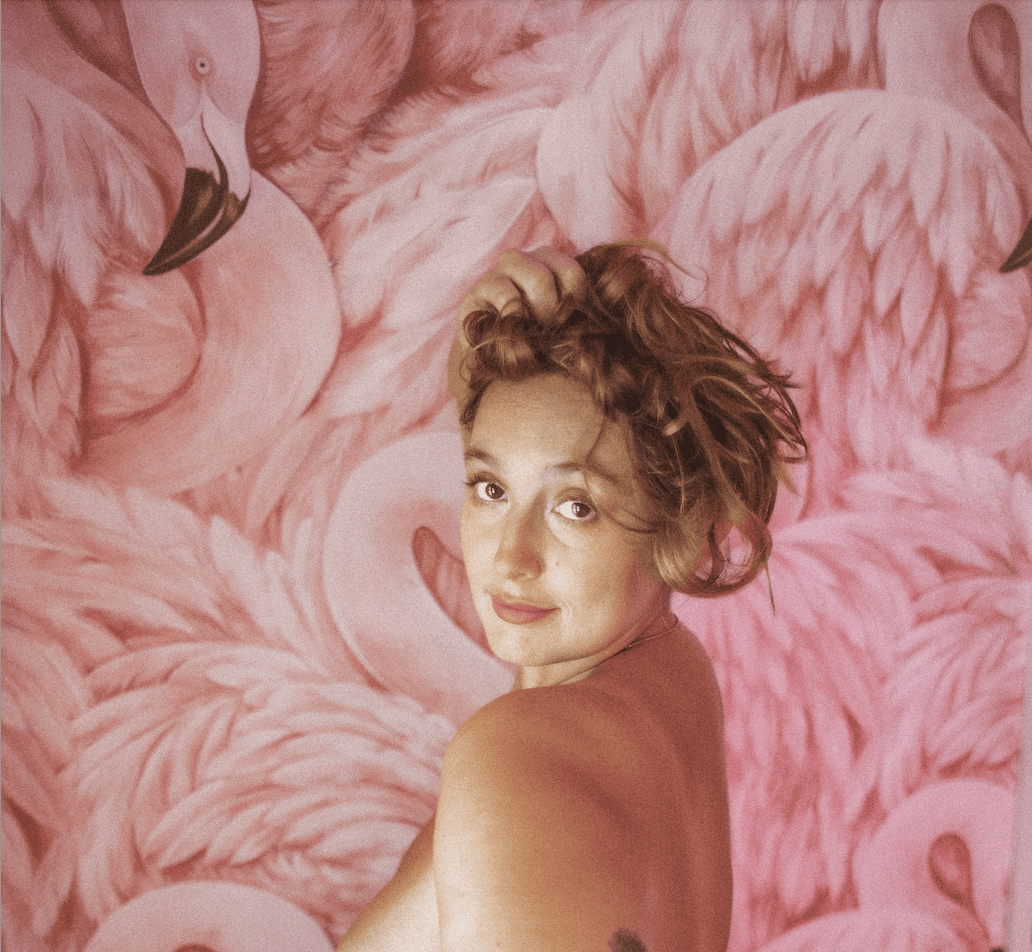
The day before coming home, my parents broke the news that my dad had prostate cancer. They didn’t have details, just that his PSA was elevated. My dad was a doctor, so he just kept saying: “a lot of men live with this for a really long time.” 3 weeks later he was gone. Diagnosis? Small-Cell Prostate Cancer, which in itself is terminal and very rare. It only accounts for about 1% of prostate cancer diagnoses. By the time they found it, it had metastasized throughout his entire body. My dad’s side has a very heavy history of cancer. My grandma – breast cancer, My uncle – a rare pancreatic/renal cancer that took him before he was 50, My grandfather – AML Leukemia, which ironically my mother also fought twice (and WON). The day my father died, his oncologist encouraged me to get genetic testing done- immediately.
Honestly, I didn’t even know what I was looking for, or what I really even expected. Every doctor I’d ever been to told me that because the cancer history was heavy on my paternal side, it didn’t really impact me much. The oncologist I saw started off by saying what many do- “You’re so young!” She was confident that nothing odd was going to show up and that I was just very anxious because of everything I had been through. After that appointment her notes on my chart read: “No obvious abnormalities, but obviously still grieving the loss of father.” About one week later I got my BRCA positive diagnosis.
I was sitting on the couch at my best friend’s house. It wasn’t a big dramatic scene like you see on screens. I was told nonchalantly over the phone. Before I had my follow-up appointment, I had never heard of BRCA. After that appointment? It felt like my entire life had been derailed. [[SIDE NOTE: I have been a Type 1 Diabetic since I was 2 years old. Which has also added Hashimoto’s, Eosinophilic Asthma, and a few other autoimmune issues with it throughout the years. ]] All I could imagine was a future of being poked & prodded with constant fear. What complications will I have? Where will it show up? When? Am I going to die early too?
BRCA takes an insanely large emotional toll on not only us, but our loved ones. You are forced to make HUGE life decisions in a very short amount of time. By my 28th birthday I had already scheduled my first full body & breast MRI, my first colonoscopy, my first mammogram, my first 3d ultrasound, my first plastic surgeon appointment, my first oncologist surgeon appointments, and a few other various ones sprinkled in there- you guys know the ones I’m talking about. On my first MRI they saw “something” on my gallbladder, 3 months later it had doubled in size. I was supposed to be going to Italy with my husband and instead I was getting my gallbladder removed. 4 weeks later, I underwent my bilateral mastectomy with reconstruction. I did not get to keep my nipples. Which I knew before heading into surgery, and have found comfort in the fact 3D nipple tattoos exist.
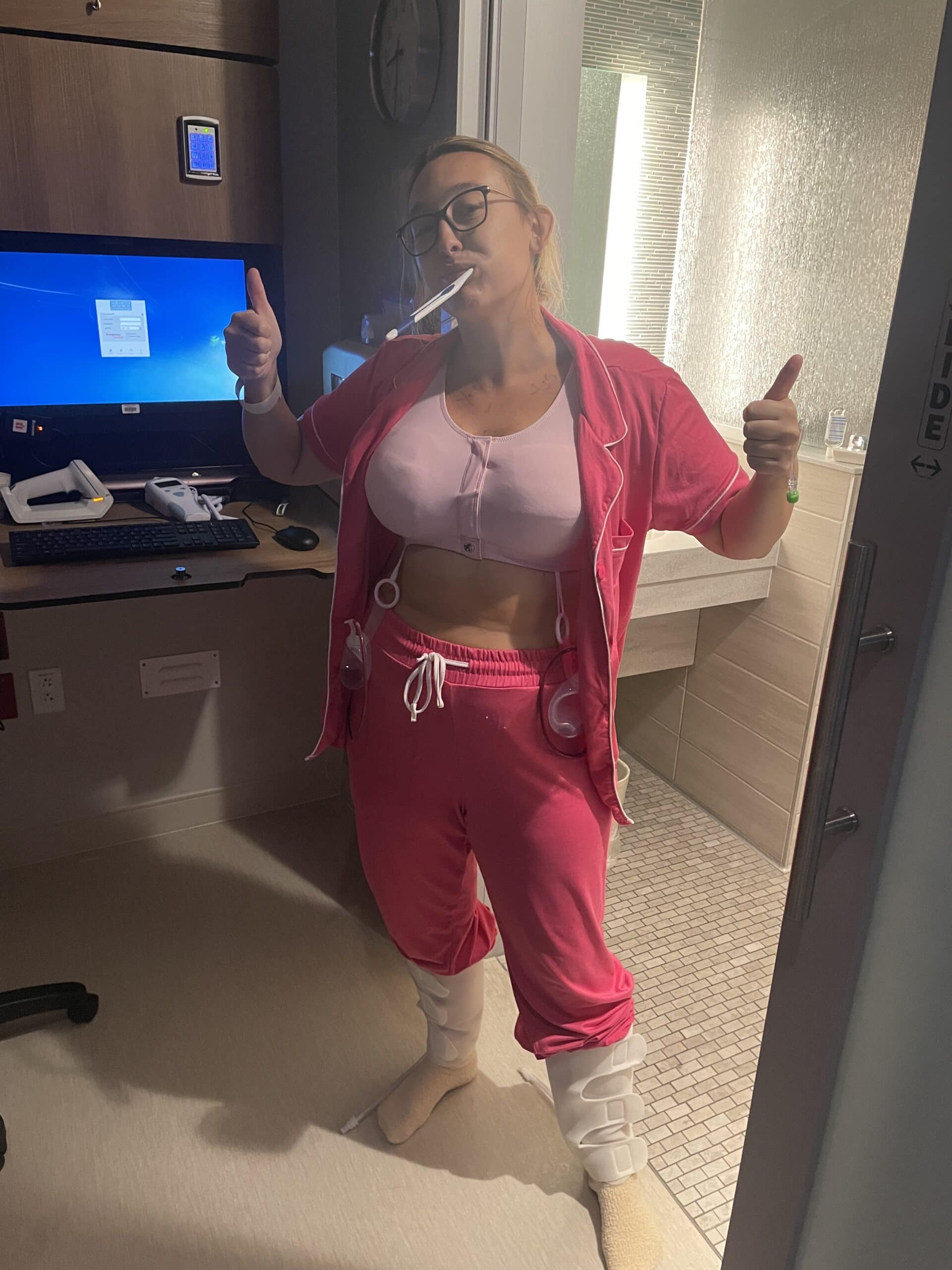
I got thrombosis (blood clots) in both superficial veins and truthfully I think that has caused me more pain and sleepless nights then my new boobs. I was up and walking the night of my surgery-and even brushed my teeth! I was pretty confident…until the next morning when my plastic surgeon came to check on me. As soon as he opened my bra I got light headed and wanted to throw up. WHO’S BODY IS THIS?!
Personally, the drains were probably THE worst part of this whole experience. I HATED not being able to shower, I was constantly checking if output was slowing, I couldn’t move around too much and I somehow had a reaction to the tape that caused sores on BOTH sides. I don’t care to relive anything similar ever again, but I did it and I am so proud of myself. My ‘foobs’ are still mismatched, one side is struggling to heal more than the other and it has been a huge mental obstacle for me looking in the mirror. I still get light headed and nauseated. I remind myself daily that I have a long road of (much-needed) healing ahead of me.
My preventative total hysterectomy will be within the next 2 years, so screening it is! One of the most asked questions is “how are you?” I always kind of laugh to myself because I really don’t know the answer.
I am OK, but I am NOT okay. I don’t know if I will ever be “ok” again. I just am. I will never be the same person I was before. BRCA has forever changed me. I have forever promised my body to go above and beyond to dodge or beat cancer before it finds me. So, I guess the answer to that question could be I am exhausted. I am angry. I am grieving. I am confused. I am heartbroken. I am scared. I am relieved. I am empowered. I am all of those things and more, sometimes all within the same 24 hour period.
I am trying to love my body again. Not just how it looks, but to love it even though I feel like it has failed me in a way. Once I’m on the other side of the preventative part of my journey, I’d really love to get more involved with supporting others diagnosed with BRCA + autoimmune diseases. As well as, support efforts in making BRCA a more recognizable diagnosis.
– Lauren Papa
In 2013, Angelina Jolie came out with an op-ed in the New York Times, explaining why she was choosing to amputate her breasts. Her announcement put the term “prophylactic mastectomy” on the map for those who had never heard of the BRCA gene. The news anchors read the statistics, “For women who have a BRCA gene mutation, the risk for early breast cancer and ovarian cancer is greatly increased. For first degree relatives of someone who has the genetic mutation, there is a 50% chance that they will also have the mutation. A mastectomy is the literal amputation of the breasts, breast tissue, lining of the chest muscle, nipple, and remaining skin. A bilateral prophylactic mastectomy can lower the risk of breast cancer by 90-95 percent.”
None of the data was new to me. I had known about the BRCA gene for thirteen years. In eighth grade, my mom was tested for the gene. She tested positive. Long before insurance companies considered a mastectomy a preventative life saving procedure, my mother made the decision that she wouldn’t get cancer like her mom. Cancer, specifically breast cancer, runs deep in my family’s gene pool. My grandmother had breast cancer twice; her brother died from it, her sister died from it, and her nephew died from it. My uncle has the gene, my brother has the gene, my cousin has the gene, and I do too.
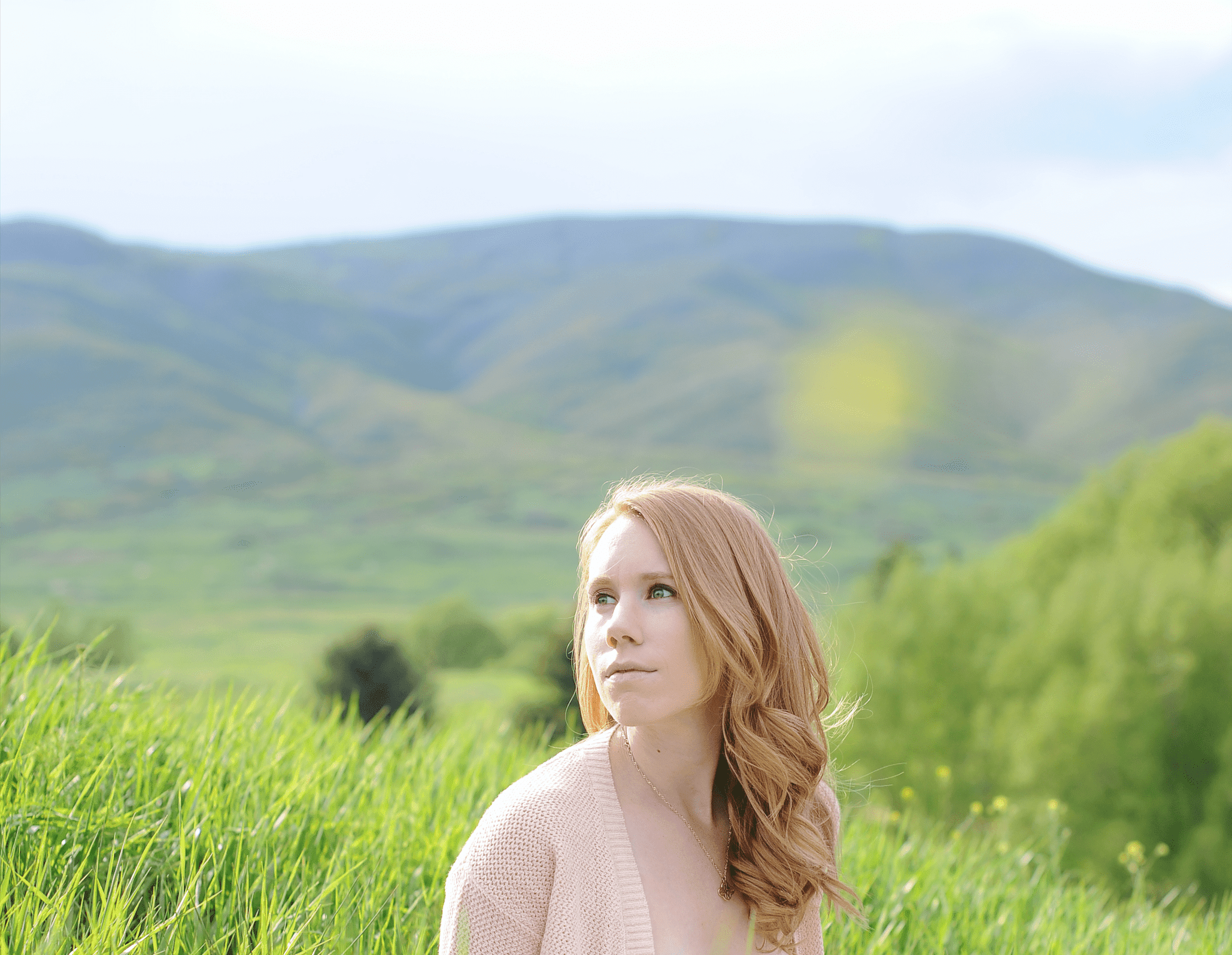
When I was 19, I was tested– it was just a simple blood test and spit test that was sent to a lab. The results came back a few months later, and I remember getting the call in my college dorm room. I had tested positive for BRCA2. First I felt a rush of quiet shock, then it turned to anger. I called my mom and cried. She cried. She apologized over and over, feeling guilty for having passed this on to me. My mutation was the exact same one she and my grandmother had.
After my genetic testing came back positive, a lot changed. At 19, this was my BRCA2+ reality: I had an 87% risk of developing breast cancer, ovarian cancer, colon cancer, and/or pancreatic cancer in my lifetime. My doctors said I would have until I was 35 before needing to “consider my options”– which basically meant monitoring my body super closely, or deciding to have a double mastectomy and having my ovaries removed to reduce my risk of developing cancer.
Before I’d gotten a positive test, 35 seemed so far away– but afterward, my new reality was always there in front of me. I had to start thinking about the seriousness of life far sooner than I had ever imagined. My doctors encouraged me to make a plan for myself. If I went with my doctors’ recommendation to have my breasts and ovaries removed at 35, what did that mean for my timeline to get married or start a family? I wasn’t ready to start thinking about that. I was in college, just starting to figure out who I was. I was falling in love for the first time. I had just barely started to think about what I wanted to do for a living. Plans about marriage and kids weren’t on my mind at all. But somewhere deep in my gut, the decision was obvious to me. As soon as I finished having kids, I would have my breasts and ovaries removed.
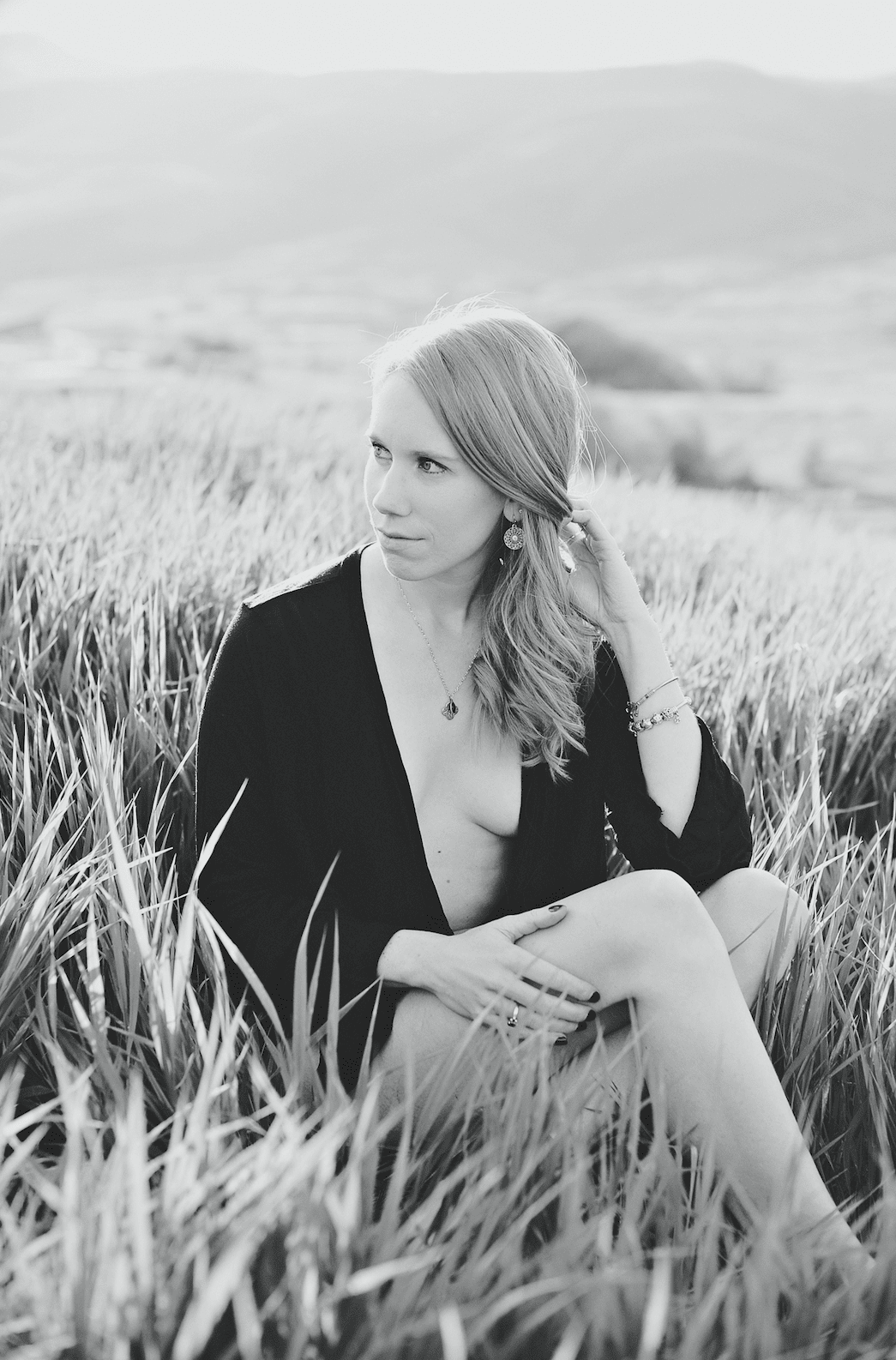
In my early twenties, I could push big life decisions to the corners of my mind, but I couldn’t completely deny my BRCA reality. OB/GYN appointments no longer consisted of just the typical pap smear and a breast exam– it now included a CA125 test– an extra blood test that detected abnormalities that looked like ovarian cancer. By age 25, every doctor appointment was accompanied by conversations about the latest breast cancer research, discussions about the surgery I’d likely have in the future, and a referral for an annual breast MRI.
I found myself at different doctors far more often than I had ever experienced in my life. And none of them were easy. Everyone talks about how awful mammograms are, but I had to do breast MRIs instead of mammograms. Even for young women with the BRCA mutation, mammograms aren’t covered by insurance until 35, so you have no choice by the MRI. And let me tell you, breast MRIs are no walk in the park. You strip down and lay on your chest, balancing your entire upper body on a skinny metal band beneath your sternum. I still remember the discomfort of laying in a superman position with my arms above my head, and having an MRI technician tug on my breasts and pull them down into plastic imaging holes. Then, I’d slide backward into a cramped tube for a half hour while the sounds of magnets and electric currents banged in my ears. It was terrible– and I wasn’t even someone who was claustrophobic or afraid of MRI machines. Each time, I remember thinking how barbaric the whole experience was. I’d come out of the tube and my ribs and sternum would be bright red and bruised from the pressure of my weight. My chest would ache for the next 24 hours. Then I’d wait for the results.
Within a day or two, I’d usually get a call saying that they had found abnormalities on the images and wanted me to come back in for an ultrasound. From age 25 on, this experience repeated too frequently. Every six months, I’d have another exam. They’d find an abnormality, so I’d go back into the MRI machine to see if it had changed shape. For days, I’d dread the phone call. I’d feel panic waiting for results. I played that game for three years.
Then, at 28– a lump. Testing found it to be benign, but the panic you feel when you are BRCA2+ and know you will develop breast cancer in your lifetime… it makes your head spin. Every month when you do your self exam in the shower, you feel a wave of anxiety.
Then my friend, Lynn, was diagnosed with breast cancer…. for the second time. A few months later, she died. A few months after that, another close friend was diagnosed. And a few months after that, my best friend’s sister was diagnosed with stage four breast cancer in her early 30s. A few months later, she was dead.
I talked about the weight of my genetic reality every now and then with my boyfriend. Mostly, I would share my feelings before I would go into appointments or when I got some test results back. I’d talk about the eventuality of surgery, and he would always say, “Oh by the time you have to do that, everything will be so different. You don’t know how medicine will change. There may be a cure. Stop talking like that.”
But I needed to talk about it… to prepare myself for what I knew I would have to do. Even if medical research drastically changed, I still needed to be emotionally prepared to lose my breasts in the event that new technology wouldn’t serve me in time. He didn’t get it. Positivity was going to change my genetic reality. Denial was only going to create impractical and emotionally harmful expectations. I needed to be mentally and emotionally prepared for this.
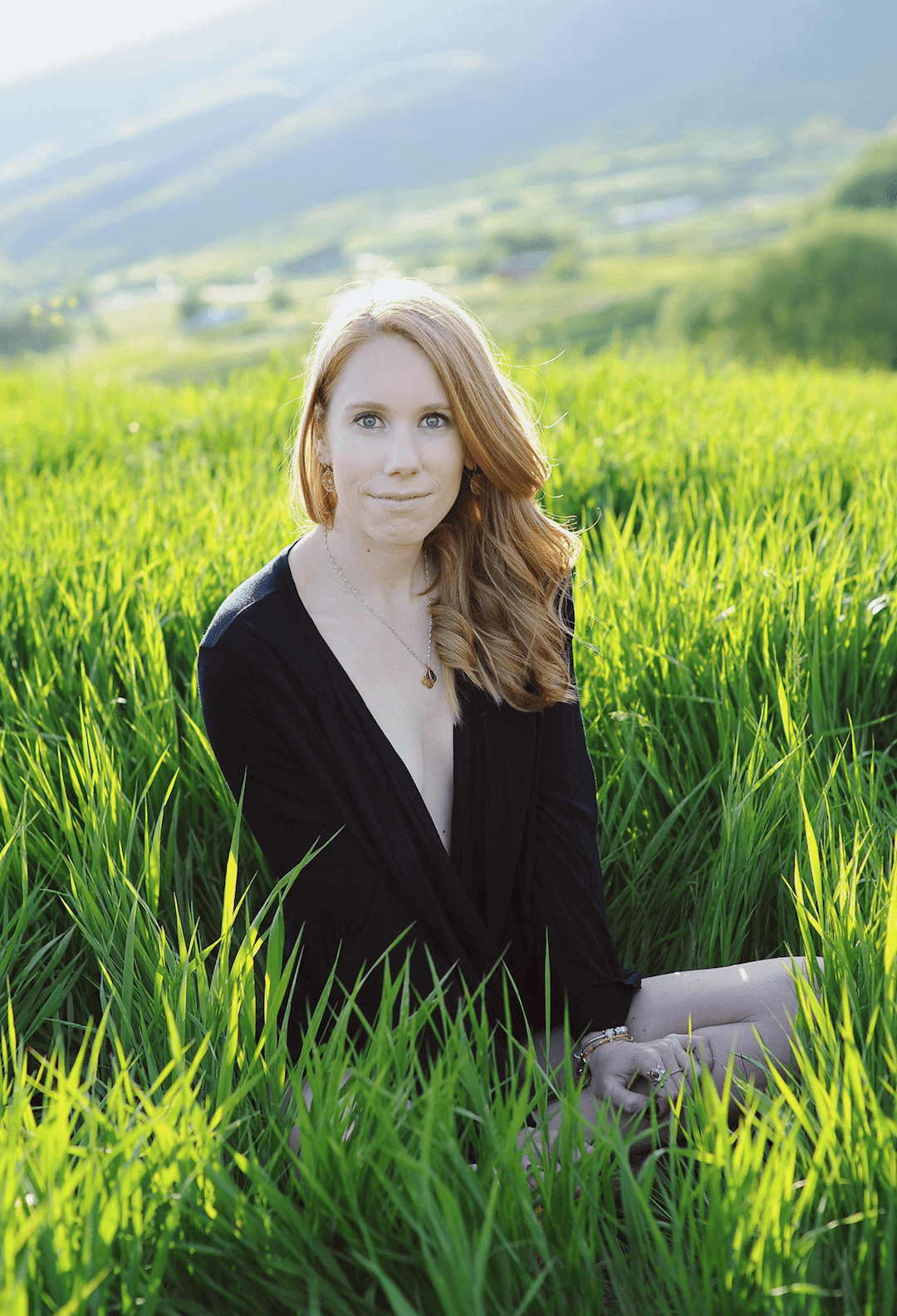
Even though I knew it was years away, I began confiding more and more in the women in my life who had experience in this area. Fortunately, or perhaps unfortunately, there were many women in my life who had been through some kind of variation of breast cancer, mastectomy, reconstruction, or genetic mutation diagnosis. I was grateful how open they were with every little detail of their surgeries. They made me unafraid to ask uncomfortable questions, and empowered me to be fearless when it came to a topic that so many women were ashamed to discuss.
By 28, I was tired. The year before, my boyfriend and I had broken up after nine years together, I had moved across the country, and I had experienced a medical trauma that had increased my likelihood of developing cancer. Instead of an 87% chance in my lifetime, I was looking at 93% within five years. I didn’t want to wait anymore, and neither did my doctors. The threat of cancer sat inside me and began taking up space in a way that it hadn’t before. So I had a very candid conversation with my medical team: If I waited to have the surgery until after I had kids, I would be able to breastfeed them. But if I waited too long to have kids, I might end up with cancer and then become infertile because of chemo in the process. The choice was clear.
So at age 29, I chose courage instead of fear. I made the choice to say farewell to my breasts, to say goodbye to the plan that I had made when I first got my genetic results back, and to say goodbye to the certainty of breast cancer.
Without question, I can truly say it was the best decision I’ve ever made. Losing my breasts made me stronger than I ever knew possible. It allowed me to see the world through different eyes. In looking for guidance from others who went through cancer and mastectomy, I discovered the power of vulnerability and the importance of a supportive community. In helping others in the midst of their process, I gained a humbling confidence in my decision and the fact that I had a choice. In having surgery reconstruction, I began to cherish a million little things that my body allowed me to do that I once took for granted. In sharing my story, I learned that my experience could help others.
In making the decision to reduce my risk of developing cancer through prophylactic mastectomy, I became a previvor– an advocate for genetic detection and prevention, a voice to improve insurance systems and medical care, a community warrior, and a woman grateful to have had a choice.
By, Lindsay Carver
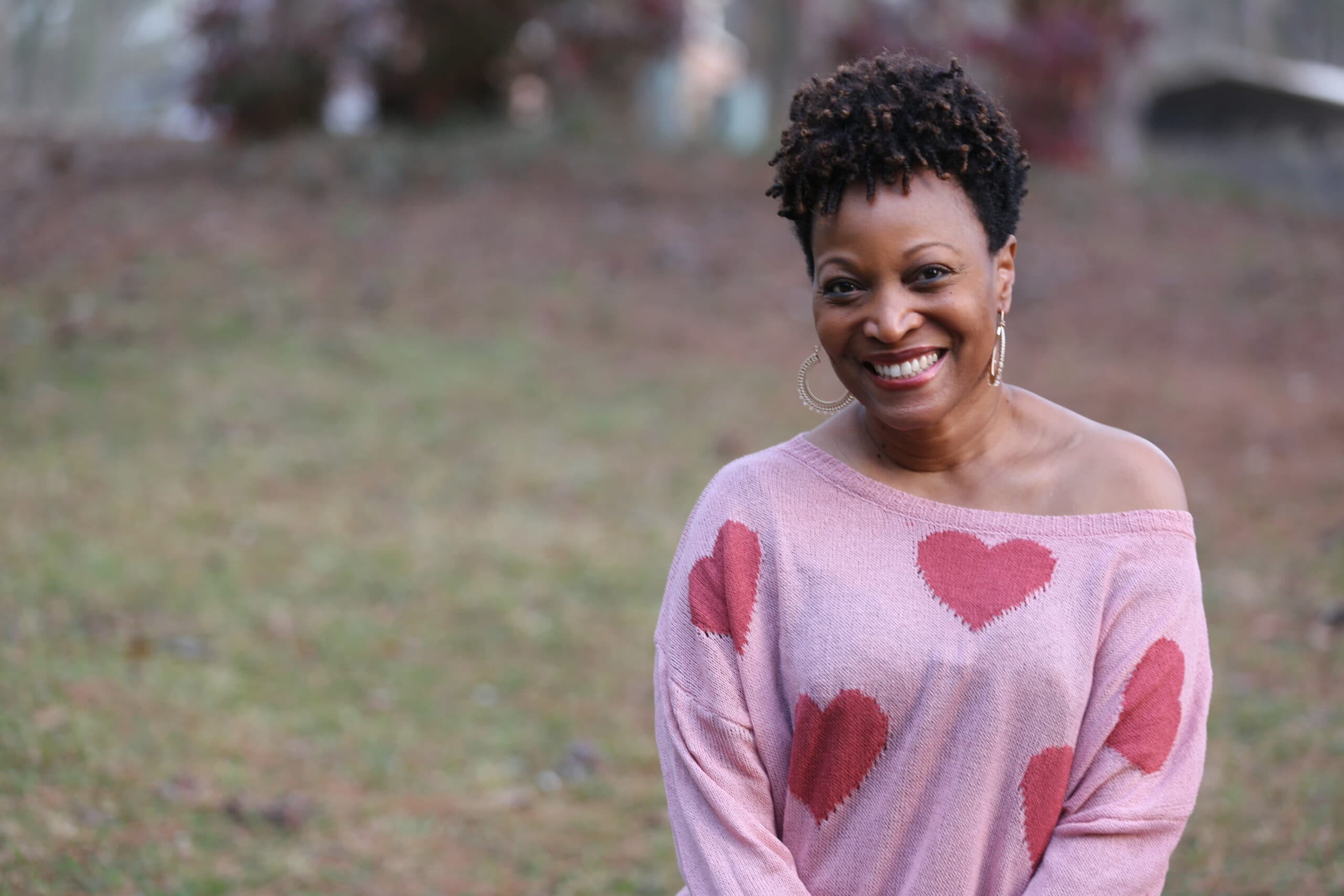
I am a previvor…and most people don’t know what that means. I am part of the cancer community, but I’ve never had cancer. My life was forever changed based on the probability of having cancer; a simple genetic test started this amazingly wonderful, scary rollercoaster ride. I casually had genetic testing done during an annual exam and my results revealed that I had a 75% chance of developing breast cancer and an 80% chance of developing ovarian cancer within my lifetime. As the daughter of a breast cancer survivor, I always figured I might be susceptible to the disease but seeing the percentage of probability had me frightfully shaken! I have watched my mother battle breast cancer twice and most recently stood by helplessly as my baby sister fought her way through this same dreadful disease. Cancer continues to upset the balance of our family and threatens to disrupt our peace, but what it hasn’t realized is that we are a family of warriors, and these challenges only serve to strengthen us and test our resiliency.
I have spent most of my life waiting on cancer to find me, accepting my fate as a rite of passage like my mother and sister before me, but genetic testing shifted my mindset and totally changed the game. It allowed me to make a proactive decision instead of a reactive one. Deciding to have a preventative mastectomy and hysterectomy was a huge decision. My life was forever changed but in all the best ways! When I considered having the surgeries, I could only focus on what I would lose. I didn’t consider how much I could gain. I fought back and I don’t have to live the rest of my life waiting on breast and ovarian cancer to casually show up and threaten the very essence of me, to stifle my livelihood, or to take my life. I can live in peace knowing that in having the surgeries I reduced my chances of having breast and ovarian cancers to 1%.
My mother had her first bout with cancer when I was in college. I remember calling home to check on her and she would often tell me, “Focus on school, I’m fine”. I was away at school in Missouri, more than 10 hours away while my family was in Texas, but I felt the weight of that experience every day. It was such a scary time for our family. I felt like I woke up each day in a fog and spent most of it holding my breath waiting on a phone call that could change my life forever. I was so young, and also a single mom and I needed my mom more than ever during this time. The rollercoaster of emotions was endless. There were days that I would feel hurt, rage, sadness, and fear, but all the while, my mother relied on her faith, surrounded herself with positive energy and friends, and was fortified and strengthened by this experience. Then ten years later, it happened again. My mother found another lump. As our family braced itself for another rollercoaster ride, my mother was unshakeable and unflappable through it all. She propped us all up and readied us once again for the fight of our lives and we are more than grateful that she came out whole, healed and healthy on the other side. She is the glue that holds our family together and her presence sets the tone for everything that we do in our lives. I am thankful that she is still here to tell her own story.
My mother found both of her lumps through self-breast exams, and she would preach to all of us (her three daughters) religiously about the importance of knowing your body and performing monthly self-exams. She even bought us the tutorial placards with the pictures to hang in the shower and made us practice “finding the pea” in the mock boobs. She was insistent on us staying one step ahead of this dreadful disease. She is the best example of advocacy beginning at home within our own four walls. I am embarrassed to share that I was horrible about self-breast exams. I was so afraid of what I might find. I was crippled by fear and the panic of reliving my mother’s experience. I know that there may be others like me, so I advocate fiercely now for monthly self-breast exams and knowing your body well enough to know “what right looks like”. Awareness is such an important tool in fighting this dreadful disease and it can make a difference in life and death.
My life as a previvor has gifted me with an amazing sense of hope and I see each new day with fresh eyes because I decided to fight for my life, even when it might not make sense to some people. I am no longer haunted by the fear of suddenly finding a lump and disrupting everything that I hold closest to me. I view each day as an opportunity to learn more things and soak in every bit of goodness around me because I have seen firsthand the impact of cancer on a family. Any doubt that I may have had about my decision to have surgery was lifted after watching my mother’s pain as my sister battled breast cancer. I could never watch her go through that again. Each day I am more confident and resolute that this was the best decision for me. I have become a part of an amazing sisterhood and I am encouraged each day by their strength and resiliency.
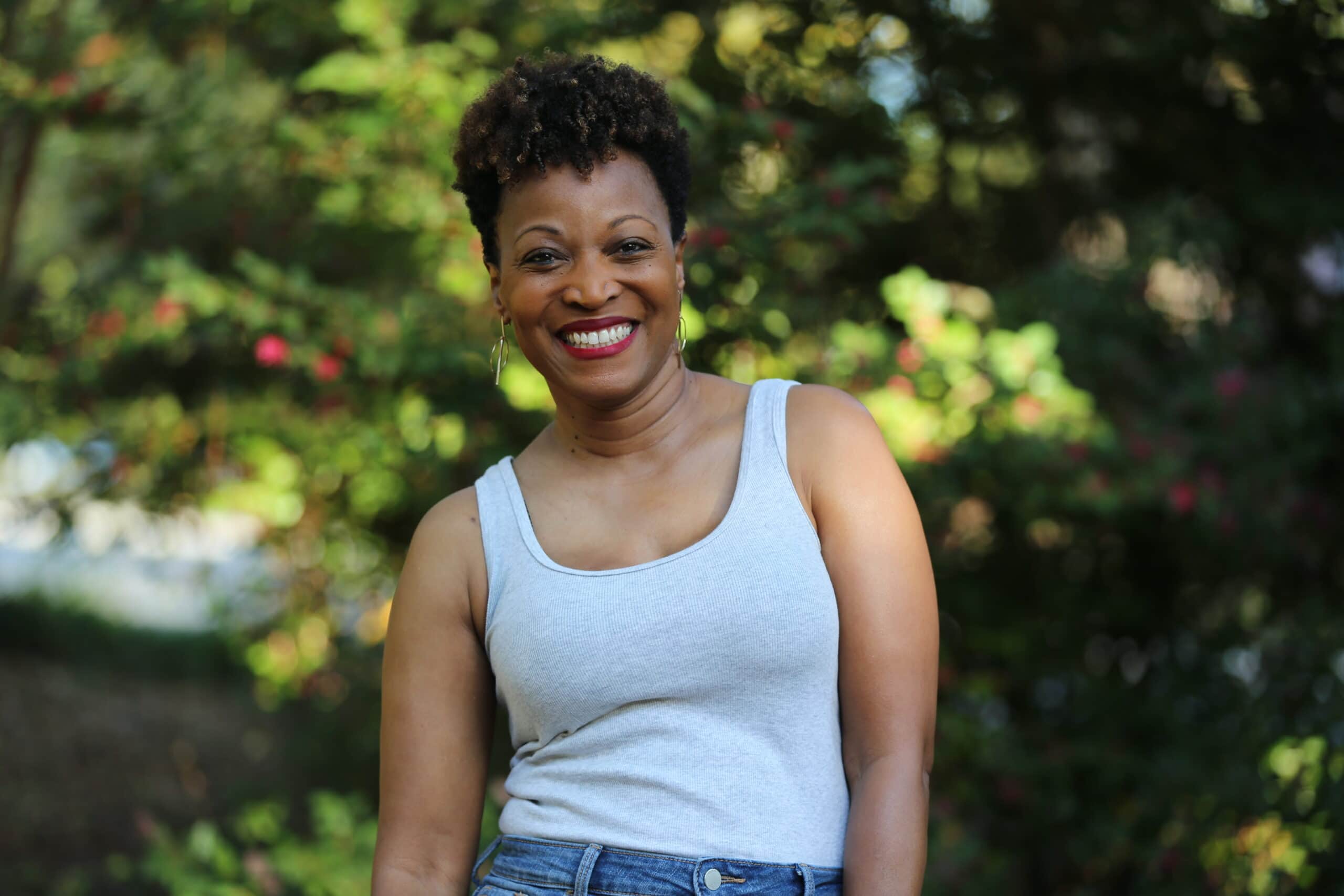
Through this process, I have watched the best parts of myself unfold. I have uncovered my voice and a passion to enrich, inspire and spread the word about the importance of genetic testing. Preventative surgeries may not be for everyone but having genetic testing arms you with the information to make an informed decision. Knowing allows for consistent and thorough monitoring which helps the doctors to detect breast and ovarian cancer sooner. To me, that’s a game-changer!
My story doesn’t start with me, it starts with my mother. My family is from a small town, near Youngstown, OH. Growing up in a 100% dominate Italian Family, we were all very close. Friends were family and the door was always open. I was your typical child; the oldest of 2 children. In 2000, at 36 years old my mother was diagnosed with Breast Cancer. At 11 years old, my world changed. My brother and I were kept hidden from the majority of our mom’s diagnosis.
After the initial diagnosis, a couple years later the cancer returned. My parents decided to get a second opinion. Again, my brother and I were shielded, but our mother didn’t show any pain. She made it to every school and sporting event. She was literally the strongest person we knew. How does one go through Chemo and Radiation and still smile every day?
At 18, I was applying to college and starting the next chapter of my life. But things took a turn. My mother was losing weight and on oxygen all the time. My mother planned my graduation party for me, 300 people later it was one amazing party. One week later she passed away on June 29, 2007. Years later I realized she only made it as long as she did for the party. As much as that party was for me, it was also for her.

I went to college per my family’s wishes. I saw a therapist once a week for 4 years. Life was not easy, but I took what God handed me and made the most of life. In 2007, during my fall semester at college, I had this gut feeling to get tested for the BRCA mutation. When I finally saw the genetic counselor, the doctor told me to wait until after I graduated college and try to live my life as best I could. My mother wasn’t tested and we didn’t have any family history (2 or more people with Breast or Ovarian Cancer). So I did what the doctor told me to do. Four years later in 2011, I graduated college and landed an amazing job. I honestly didn’t think I was going to graduate. It was a rough 4 years but I did it!
In 2014, at 24 I started early screening: mammograms and breast MRIs as well as ovarian testing every 6 months. Finally in June of 2015 I decided to get tested, the gut feeling was still there. The doctors thought I was crazy but I didn’t care. Even if I didn’t have the genetic marker, I was still at a higher risk given my mother’s young diagnosis. So on that day In June of 2015, I gave blood for the BRCA Mutation Test. One month later I met with the genetic councilor to get my results: BRCA 2+. Here was my first lesson I learned as an adult: Self Advocacy. I was my OWN voice and got tested. I listened to my gut feeling even when the doctors told me I shouldn’t be tested.
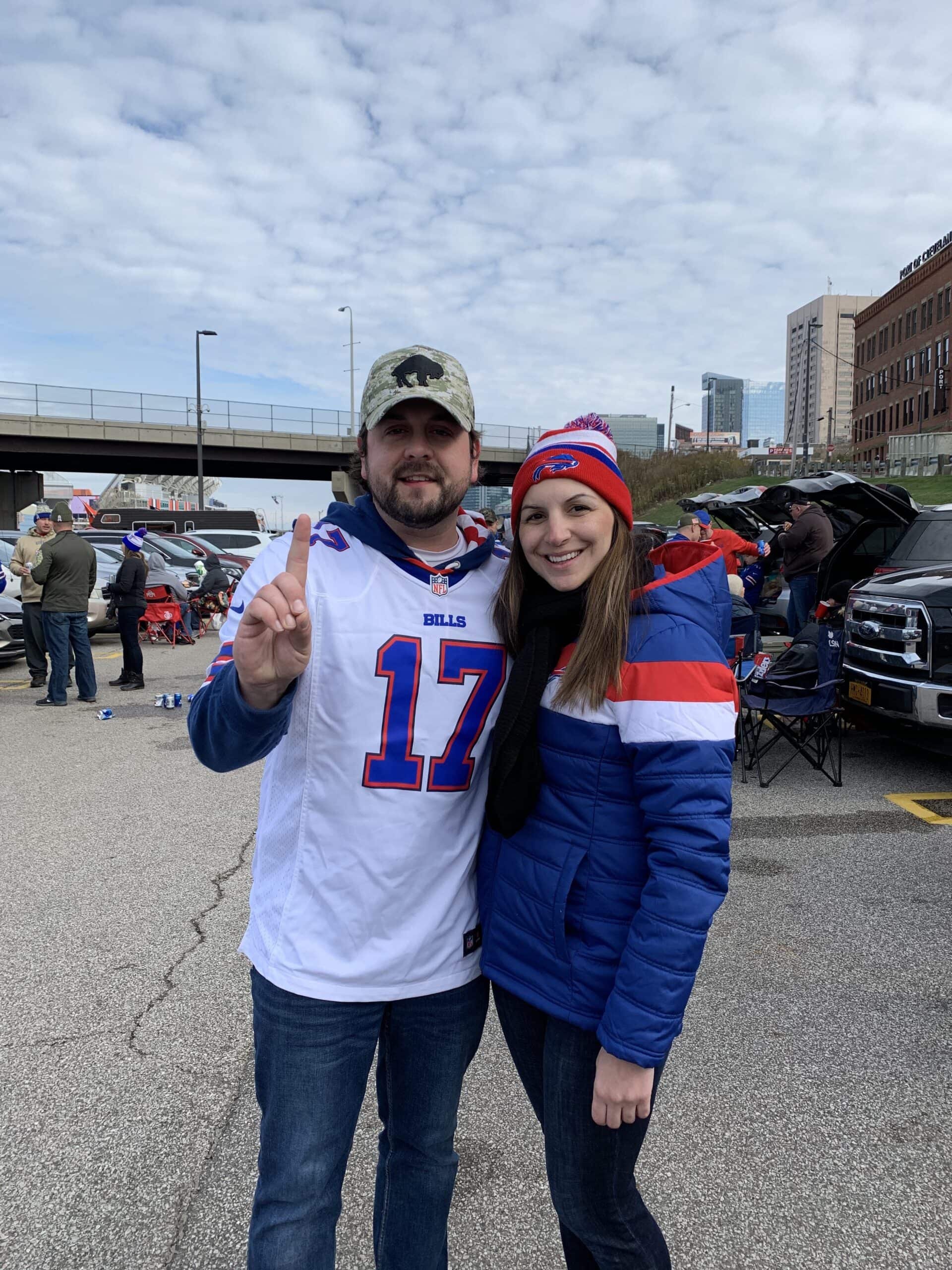
After the realization of my mutation, a couple tears, and 9 holes of golf with my dad 9 (he never missed a doctor’s appointment), I had a lot to think about. But one thing was for certain, I was relieved to know; knowledge is a powerful thing. After many conversations and much support from my dad and boyfriend (now husband), we decided to do the 6 month screening. When my husband and I got engaged in 2016, and our life was moving forward, I started thinking more about our future. I realized that I didn’t want to live in fear and wait around for the test results. So, we got married in July of 2017, went on an amazing honeymoon, and then we had a more serious conversation about our future: do the surgery now or later. Well, a couple months later in April of 2018 I underwent a prophylactic double mastectomy with tissue expanders and in November of 2018 I had my exchange surgery and received my implants. The months and days leading up to the surgery were full or emotion: I felt strong, happy, and smart but I was also scared. I wasn’t sad about losing my breasts, I was relieved.
After I completed my exchange surgery, I decided I wanted to tell my story. So I posted my story on Instagram and Facebook. I was a little nervous as I’m a very private person, only close family and friends, and my employer knew about the surgery. I wasn’t afraid to tell people about my surgery, I LOVED telling my story. It shows I wasn’t afraid to stand up for what I thought or wanted. It shows I was brave and smart. I wish I would have documented more of my journey. The reason for not coming forward sooner was for the judgment society gives women. The BIGGEST judgement women have against other women – breastfeeding your children. I didn’t want to hear the just wait so you can breastfeed your children and do the surgery later. What if I waited and then I got Breast Cancer?
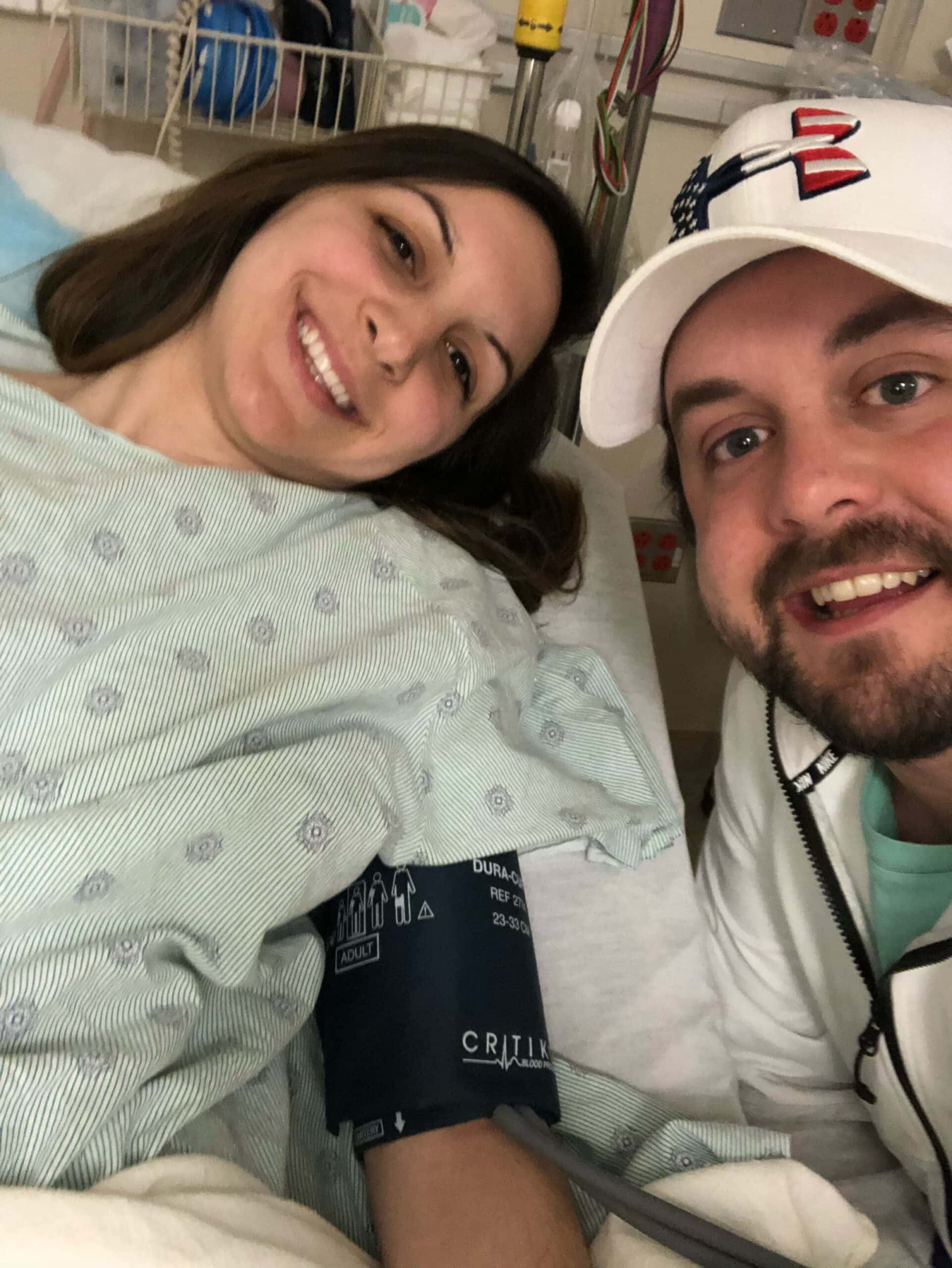
Here’s the thing – WHY does that matter how my potential future children get fed? Shouldn’t the conversation be – wow you did something brave, you SAVED your life. I was afraid for the feedback and judgement once I hit submit and then I realized: I saved my life, I’m a Previvor. And guess what, all the comments were amazing, everyone was amazed at my courage and it started something that many of us weren’t talking about: Testing. But here’s the best part of my story: I WILL be around for my children, my family, and my friends. And honestly that’s all that matters! I wish what we knew back in 2000 what we know now about testing and preventative measures – it DOES and WILL save lives. So many many lives.
By Erika McNulty
I discovered that I was BRCA1+ in November 2017 shortly before my 29th birthday. I have a strong maternal family history of breast cancer including my mother, my aunt twice, and great aunts. My mother was diagnosed with breast cancer when I was in elementary school in the late 1990s, completed genetic testing, and discovered that she was BRCA1+. Many years later when I was in graduate school, my mom told me and my siblings about her genetic status and encouraged us to get tested when we were ready.
I sat with this information for several years before finally making a genetic counseling appointment in fall 2017. I went into testing assuming that I would be positive for the mutation and would be pleasantly surprised if it was negative, figuring that would be the easiest way to cope with either outcome. Intuitively, I knew I was BRCA1+, so when I got the positive result it validated what I already intrinsically knew. After two years of breast MRIs and mammograms, I decided to have my prophylactic bilateral mastectomy in January 2020, a couple days after my 31st birthday and a phenomenal bye bye boobies birthday party with family and friends. I was so confident in my decision to have a preventative mastectomy. I was determined to reframe this huge surgery into a celebration of life and taking control of my future. I had done a ton of research, talked to many other women about their mastectomies, and knew all the lingo and questions to ask my very capable surgeons. My breast and plastic surgeons agreed that as a young healthy woman that I would have a very positive outcome. My breast surgeon said that she was excited for my mastectomy and reconstruction because she believed that I would have aesthetically good results. I never for a second thought that things might not go to plan.
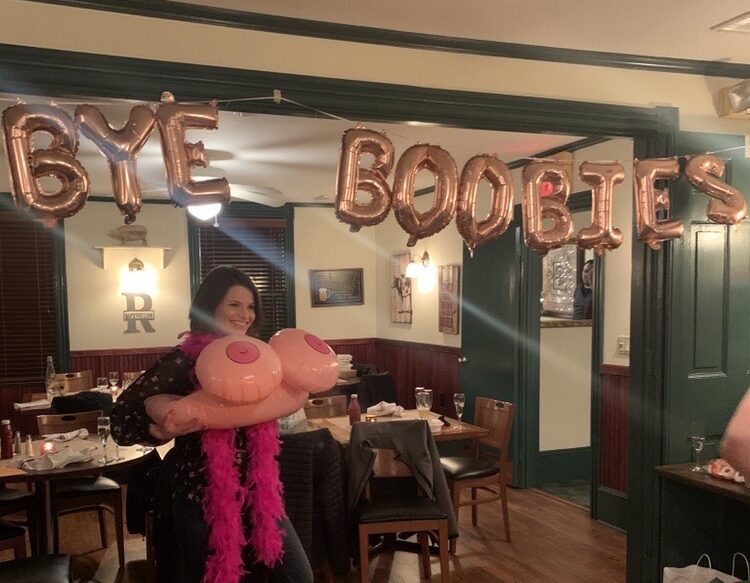
I had my nipple-sparing mastectomy with placement of over-the-muscle tissue expanders on January 6th, 2020. After surgery, there were issues with blood flow to my nipples, especially my left nipple, that my surgeons monitored closely. My breast surgeon enthusiastically told me that the nipples want to live and would likely survive. I believed that my nipples were resilient and would heal, but after three weeks with minimal progress despite use of various creams to promote healing and stimulate blood flow, my left nipple and surrounding skin continued to get darker and darker as did a small part of my right nipple. I remember sitting in my plastic surgeon’s office on a Thursday afternoon, thrilled to finally have my last 2 drains out after 2.5 weeks, when he told me that he would remove the necrotic tissue on my left breast, including my entire left nipple and part of my right nipple. In that moment, I went into a full comedy routine a la Marvelous Mrs. Maisel which had the whole plastics team laughing. The moment that the plastics team stepped out of the room, I immediately started crying. How could this be happening? I’m young, healthy, and was going to have a great aesthetic outcome and now I’m losing a nipple. It wasn’t supposed to happen this way but I continued to smile, make the best of it, to crack jokes and remain optimistic. The necrotic tissue was removed the following Tuesday when I bid farewell to my left nipple and part of my right nipple.
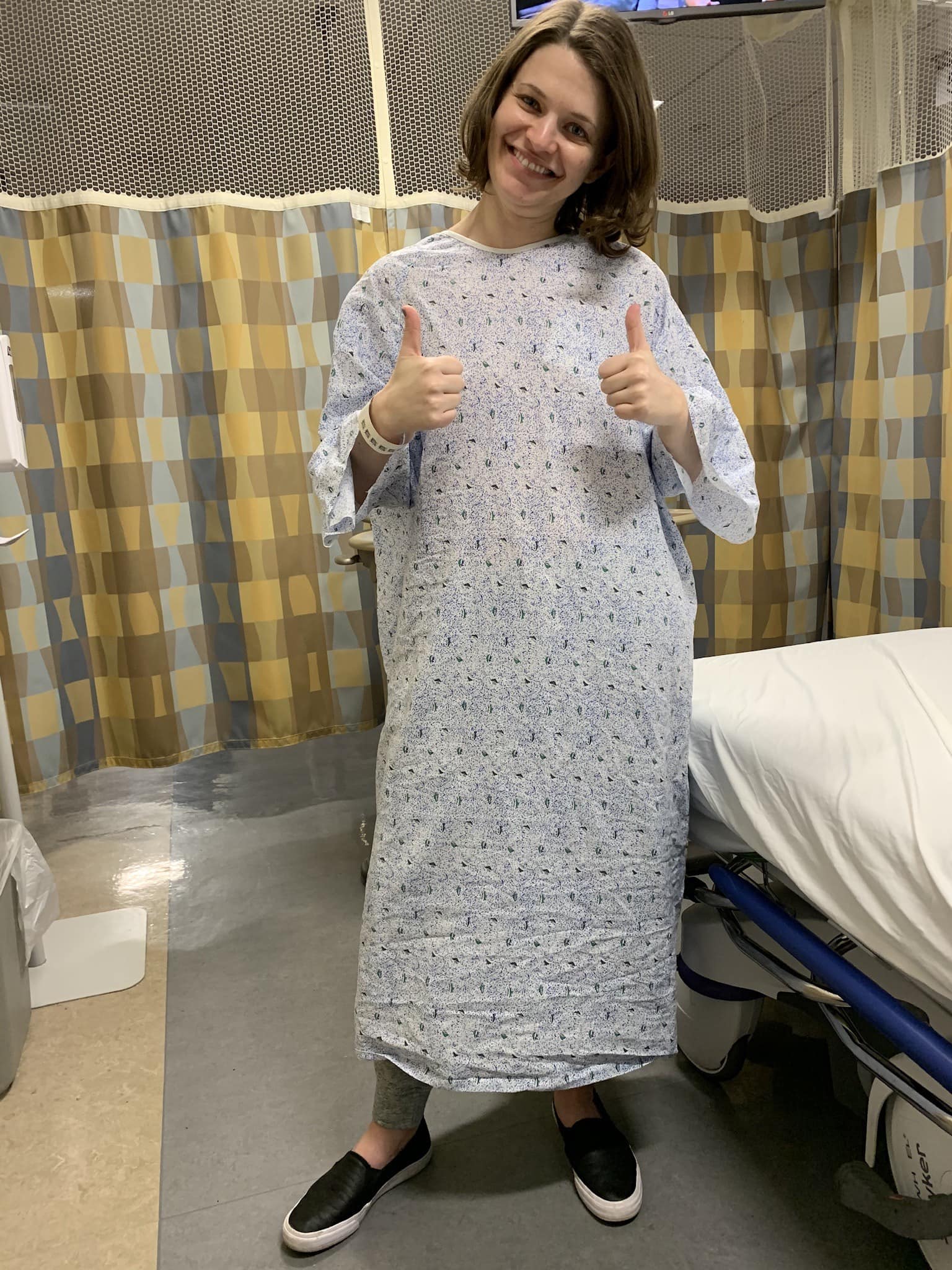
I chose to focus on the funnier moments to balance out the moments of medical trauma, like when the water stopped in the middle of my pre-op Hibiclens shower the night before my revision surgery so I stood wet with my breasts wrapped in a black garbage bag calling friends that lived nearby to see if I could finish my shower at their house. I had a wound vac for a week after this revision surgery which I joked made me feel like a cow constantly being milked. I decorated my wound vac to look like it had a face and pretended that it was a walkie-talkie. I chuckled as I would stuff my bra like a middle school girl before I went out to make my chest look a bit more normal. These moments of levity brought lightness to a very challenging situation that I had little control over.

Once the wound vac and drains were removed, I was left with a giant three-pronged scar on my left breast and a smaller version on my right breast. While it was nice to see my body without any dying tissue, I felt deformed and disfigured. I thought I was in the clear until the centers of both wounds didn’t heal resulting in multiple in-office visits getting new stitches and the sudden development of a seroma which lead to a hospital visit for ultrasound-guided drainage. It was then that staying positive and making jokes to stay afloat didn’t feel like enough anymore. Smiling became draining, laughing felt dimensionless and exhausting, and staying optimistic was getting harder. I grieved the loss of my breasts as I knew them and the unexpected loss of my nipple. I struggled with temporarily being completely flat. This process was changing me both physically and emotionally in ways I didn’t anticipate. I leaned on friends, family, and started therapy for additional support.
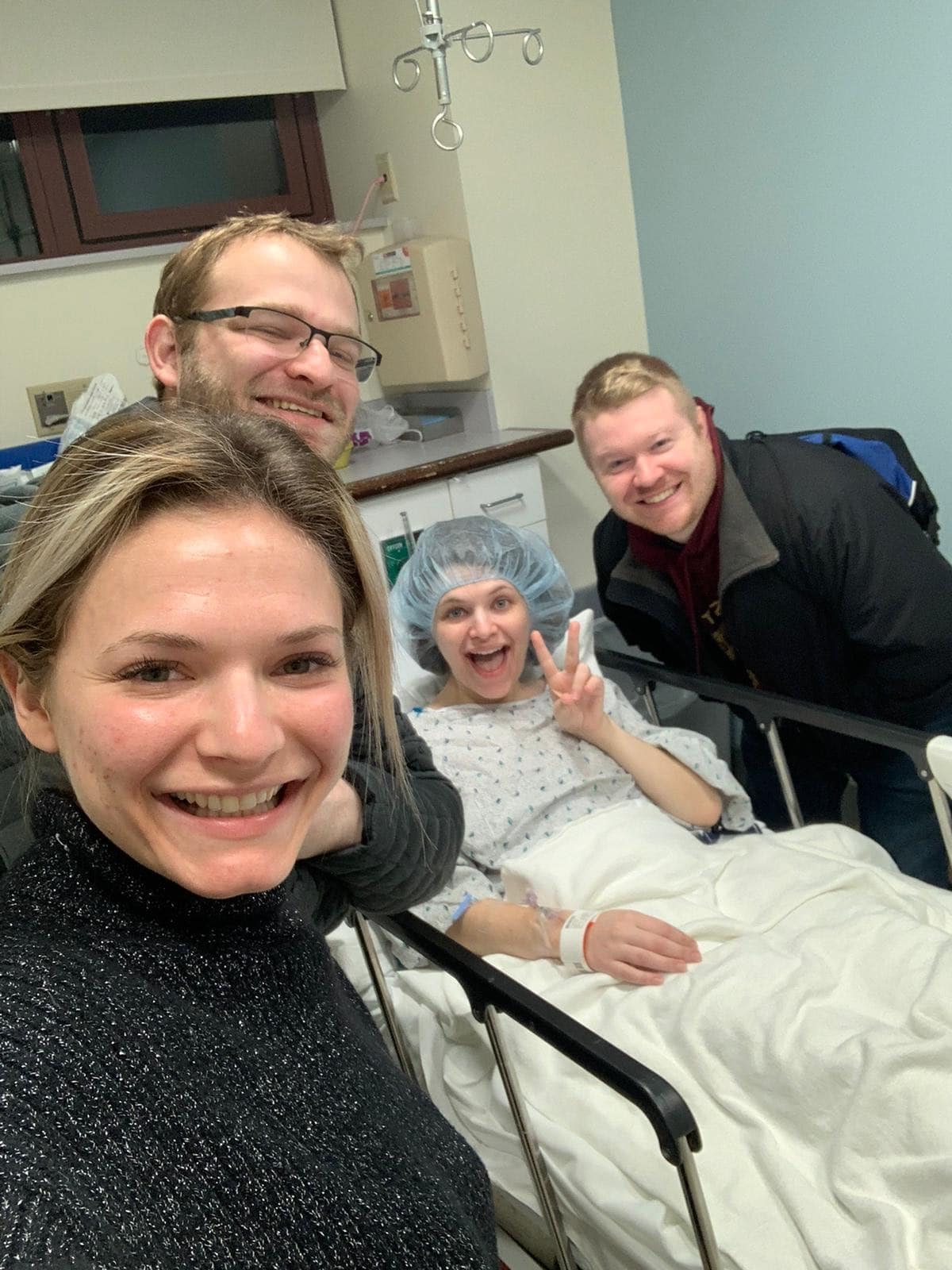
After a few dark weeks, my healing started to turn around. Both breast wounds closed and the serous fluid reabsorbed into my body. I was cleared to drive after over two months and regained a bit more independence. It felt amazing to see my body rebuild from the trauma it had been through. I finally started having expander fills slowly but surely and felt more like myself everyday as the intense anxiety over what complication might be coming next began to subside as my body continued to transform and heal.

Through my mastectomy, I learned that positivity isn’t about perfection. Positivity is about having restorative practices like finding humor in stressful moments, getting help from others, maintaining optimism when things don’t go as planned, and focusing on what we do have control over when life feels overwhelming and chaotic. Remaining positive isn’t all sunshine and rainbows, it’s about finding the break in the clouds where the sunlight is trickling though that reminds us that the storm will come to an end.
By Sabrina Starkman

I have this running joke that began at age 40. Every year around my birthday, I have some new diagnosis to wrangle with. The birthday present at 40 was PCOS, or Polycystic Ovarian Syndrome. Poly what? I consider myself to be quite savvy in all things medically related, but I had never heard of this one. Four letters that were a huge pain in my butt. My skin looked like I was 13 again, and no matter how much I worked out, I was packing on the weight. Some birthday present, eh?
Looking back, it was at 40 that my hormones began to wreak havoc on my body. At the time, I was training hard with the hopes of getting into serious bodybuilding. Completely changing my diet and exercise, and consuming a large amount of protein daily probably were not the kindest things I could have done to my body. However, I also believe to my core that I was perimenopausal at the time, despite my healthcare providers telling me I was way too young.
The next couple years, my “birthday presents” were surgeries – knee and shoulder injuries from roller derby (completely worth it). Year 43 was extra special, and I say that with a massive dose of sarcasm. What I first chalked up to PCOS, continued to nag my inner knowing. My body was telling me something different and I posed the question to my doctor that I really did not want the answer to…”Do you think I’m in menopause?” Even then, my doctor still claimed I was too young. I pushed back with, “Can we at least do the blood test?” Sure enough, I was knee deep in what affectionately became known as Esther the Menopause Monster.
Esther and I became very well-acquainted. We hung out together often. I would know she was visiting because she would cause me to lose my patience or make me super-hot. Hot like the Sierra Desert, not hot like Jason Momoa. The characteristic I liked least about her was her stubbornness. No matter what I did for exercise or what I ate, she would hang out around my waistline. Worse yet, I caught a glimpse of my butt in the kids’ bathroom mirror and swore it belonged to someone else…like the lunch lady I remembered in elementary school. What in the hell was happening to my svelte little figure I had known all my life, even after having four babies?!
The year of my 44th birthday, I was going to see how Esther and I could “be on a break,” with a little intervention from some hormone therapy. Doing my research, I thought bio identicals would be the safest. Considering my family health history, and taking some guidance from my doctor, I decided it would be best to undergo genetic testing to know the best course of action. And so, it was determined that my present for birthday 44 was going to be a BRCA1 positive diagnosis. 2019 was the year of seven related surgeries – an oophorectomy followed by six breast surgeries, including a double mastectomy, implants, ex-plants, and multiple “fixes” to take care of scarring, infection and open wounds. 2019 can bite me.
The year of birthday 45 has been different from all the rest, and not just because it happened during quarantine. It has been the year of re-learning how to love myself and my body. This trusty little machine has been through a lot. A fibromyalgia diagnosis and arthritis in my thirties, derby surgeries, now eight BRCA1 surgeries, and co-habitating with Esther. While I work out seven days a week and eat clean, the shape of my body is simply not the same, which I attribute to surgeries and hormone changes. Weight is hanging out in new places, and cellulite has taken up residence alongside Esther. I do not have my 20-something figure, or even my 30-something figure. But then again, I am not supposed to. That is a fallacy put on us by society and I have carried it around on my shoulders for far too long. So, year 45 is the year of acceptance.
Please don’t mistake my acceptance as giving up, they are not the same. I will continue to fight for my health and do the things I can do to be kinder to my body. Instead of being rough on her, I will be gentle and more forgiving. I will not look at what I have lost, but rather have appreciation and gratitude for how far this strong, tough girl has gotten me over the years. Chasing babies, going on walks with my kids, roller skating, running, lifting weights, walking 20 5 Ks in 2020, and now taking on a 10-week workout challenge. Rather than missing what was, I will give thanks for where I am – still able to take part in activities that feed my soul. I will let go of what society tells me I should look like, and re-define my own beauty, inside and out, that tells the story of my journey.
And so, my beautiful sisters out there in the world, I encourage you to do the same. Let go of the comparison, the anger, the frustration and the embarrassment. Stop shaming your own body and listening to how others define beauty. That, my dear, is up to you. Decide to meet your body where she is at. Thank her. Praise her. Speak kindly to her the next time you see her in the mirror. Most importantly, love her and appreciate her for where she has carried you and where she will be taking you.
By Amy Proffitt

My story is one that unfolded over several years. Growing up in a small family of four, we have always been close. I have an older sister, who at 36 was diagnosed with breast cancer – a major shock to my family, to say the least. I vividly remember the day I found out. It was July 2014, Labor Day weekend in NYC, and I was sitting in the corner of a shoe store at Macy’s, with about five pairs of shoes at my feet. My biggest decision in life at that point was of course, “Which ones should I get?” My phone rings and it was my mom calling, from Dubai.
That cliché phone call that changes your life in a matter of seconds.
Upon hearing the news of my sister’s malignant lump in her breast, we scrambled to get ourselves informed as a family; our blissfully simple lives were overturned and we were suddenly thrust into the complex world of medical jargon: chemo, estrogen and progesterone, BRCA+, and—what was soon to be the biggest game changer for me – bilateral mastectomies.
Not only did my sister and I both carry the BRCA+1 (or “Angelina Jolie gene”), but we were both suddenly faced with big life decisions regarding the fate of our breasts. With my sister who underwent chemo, breast reconstruction for her meant rebuilding after a rigorous round of chemo. For me, upon learning that I had a 80+% chance of getting breast cancer in my lifetime, my decision was instantaneous – I knew without a doubt that I would undergo what medically is called a “prophylactic bilateral preventative mastectomy and reconstruction;” in normal lingo: chop off my boobs and get new ones.
It was indeed a lot to digest. How quickly life can change. Only one month before, I was planning a trip to Bali and on a whim had decided to get my breasts checked – considering it was breast cancer awareness month, October 2015. Little did I know that that one incident would have such a domino effect.
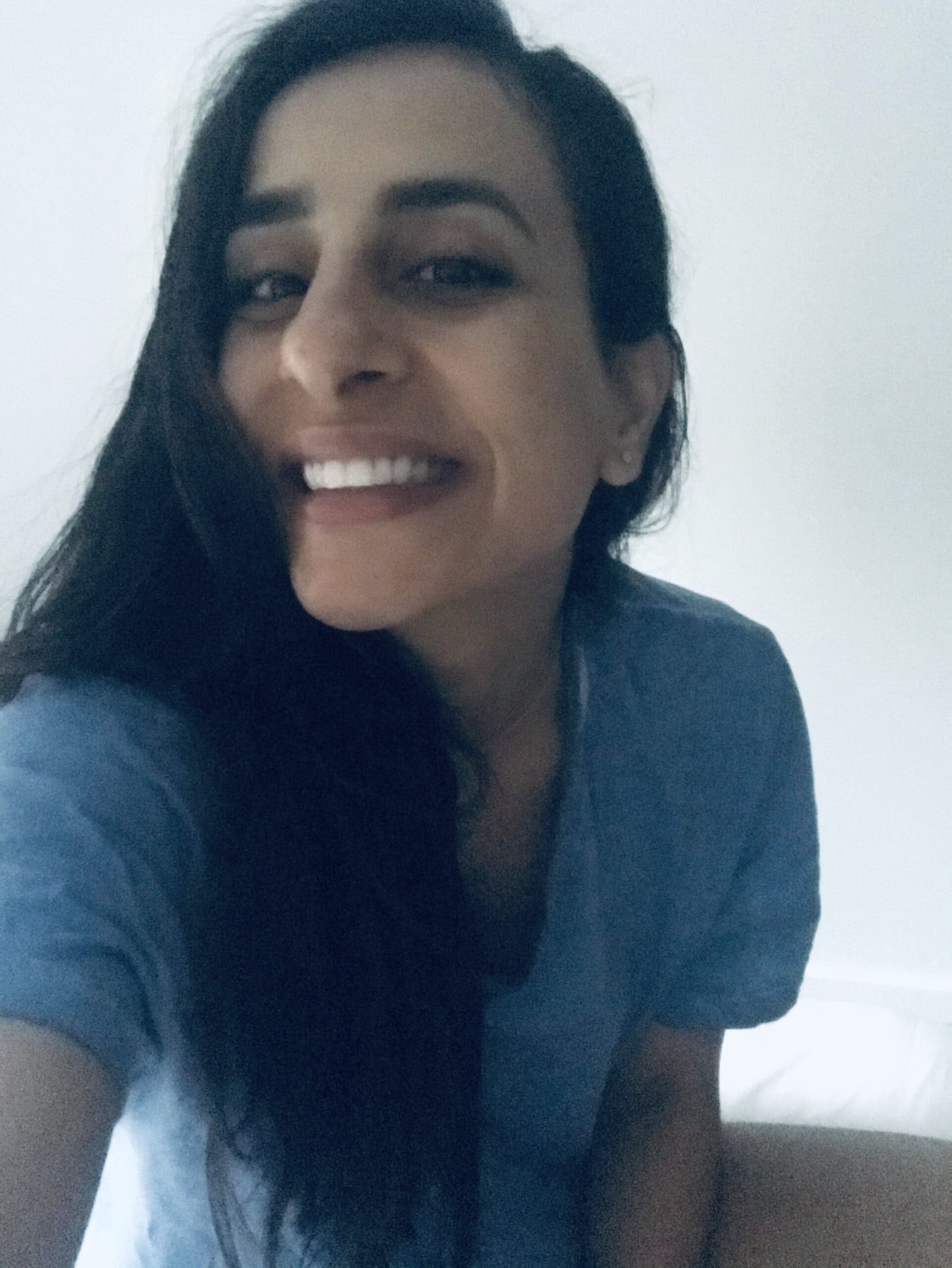
Fast forward to 2016, sitting on the operative table about to get my boobs removed, I pondered over life’s choices and decisions; from proactively getting my breasts checked and insisting that further testing be done, to undergoing a biopsy on a lump that, although was benign, eventually led me to do a gene test. Only to arrive on this very table, about to face the biggest surgery of my life, when I had never had so much as a stitch in my body before. I truly felt like a warrior.
I now embrace my new “foobs” as they’re called (fake + boobs!). Yes, I lost my boobs. But I gained a friend in the form of acceptance, fear’s long-time foe. I hope through this story you realize just how strong and resilient we are; and that with the right knowledge, tools, and resources, we can overcome anything. Even fear.

By Reema Mehra
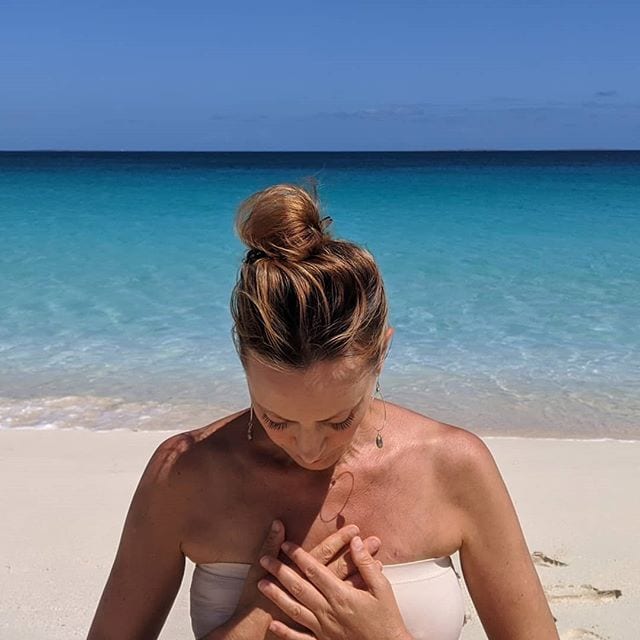
In 2010 I was diagnosed with Hodgkin’s Lymphoma and then breast cancer in 2011. I went through chemotherapy and multiple surgeries, as well as holistic and integrative treatments. The lymphoma quickly healed, but breast cancer continued to haunt me. I experienced several recurrences which resulted in excessive surgeries, treatments and cosmetic procedures.
I was a self-proclaimed vanity queen before cancer. I wouldn’t dare leave the house without makeup and I loved to dress provocatively. Turning heads fueled me. After cancer I was desperate to have some semblance of the body I once had, the one that turned heads and made me feel desirable. But every surgery led to more complications and a more mutilated appearance. Eventually, I decided to have my breast implants removed and opt for a fat grafting cosmetic procedure. I had the good sense to remove the foreign objects that I believed were causing complications, but again I was so desperate for an acceptable physique that I was willing to go under the knife once more for what I thought was a healthier option.
Removing my implants was a very difficult decision, but one that I felt was necessary. I was supposed to have multiple fat grafting procedures but after the second one, the unthinkable happened. I had complications and another cancer recurrence. This brought new meaning to the term ‘drop dead gorgeous’. Up to that point I was so desperate for a beautiful body at any cost, but finally I came to the conclusion my vanity might end up killing me.
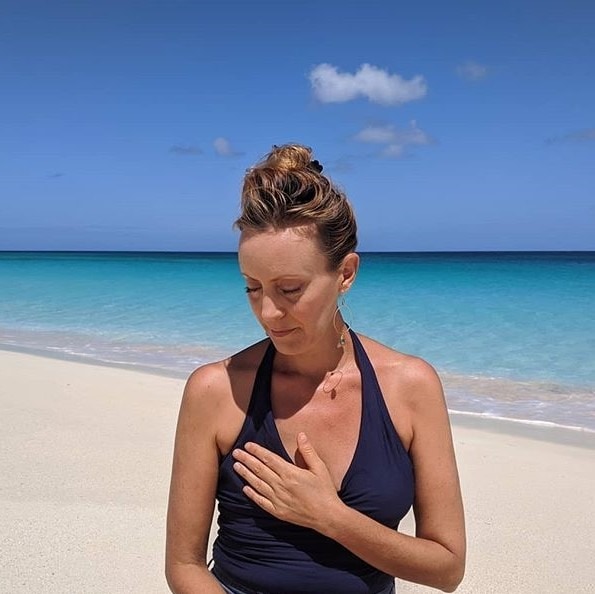
Until this turning point I had been primarily focused on the aesthetics of my physical self and I wasn’t giving my precious body the time and space to heal. In addition, I wasn’t considering the mental and emotional toll it was taking. When I had the recurrence after the fat grafting procedure, I became depressed because not only did my body look worse than ever, but I was fighting for my life once more. I started to give up hope that I would ever fully heal or ever feel comfortable in my body again.
It quickly became evident that I needed to redirect my focus from wanting a sexy body to fully healing my body and accepting it for the miraculous machine that it is. In addition to healing on a physical level I made a commitment to heal myself emotionally so that I could finally live a fulfilling life of self-worth and self-love. I started looking into natural methods to support my process, which included deep inner work and meditation. This opened the door to emotional and spiritual healing. From that moment I set out on a soul searching journey. Deep down I knew that my breasts (or lack thereof) didn’t define me, but when I looked in the mirror, I felt like less than a woman. I longed for the body I once knew, the one that got attention. And so, the grieving process began.
Mourning who I used to be was so important. I needed to grieve the person I once was to accept the person I now saw. I experienced all of the emotions: anger, sorrow, depression, resentment, shame and I allowed myself to mourn. I knew that if I wanted move forward and find happiness and fulfillment, I would need to find a way to accept my new body.
Day by day I dug a little deeper, practicing self-love and acceptance. I spent a lot of time alone, caring for myself and really getting to know who I truly am. I took time to disconnect from the outer world to go inward. I adopted intimate self-care rituals to get reacquainted with my body. It wasn’t easy but I was committed. In my quest to accept this new body, I began realizing that there is so much more to me than I ever knew. I learned that my body is just my vehicle in this life, but my soul is the driver. My body is the physical part of me that I need to take care of so I can enjoy all that life has to offer, but the mental, emotional and spiritual aspects are the driving forces of my well-being. I soon acknowledged that those aspects of my health had been sadly overlooked.
As I continued soul searching, I concluded that there is much more to me than meets the eye and the real me is something greater than I ever could have imagined. The more I did this inner work and connected with my true essence, the more I realized that the way I look on the surface does not matter in the big picture. I didn’t need anything outside of me to make me feel worthy or valued. It was always within me. I decided to redefine sexy on my own terms. To me, sexy means being empowered, confident and desirable. I proudly declared that I am all of these things down to my soul. I am eternally sexy. This led me to fully accept and unconditionally love all parts of me. Cancer unexpectedly guided me through this awakening and made me into the best version of myself. I never really loved and appreciated myself before cancer and I can say wholeheartedly that I do now. The search for my true sexiness cracked me wide open to reveal my soul, the non-material essence of who I truly am. This is what really matters. This is what is sexy.
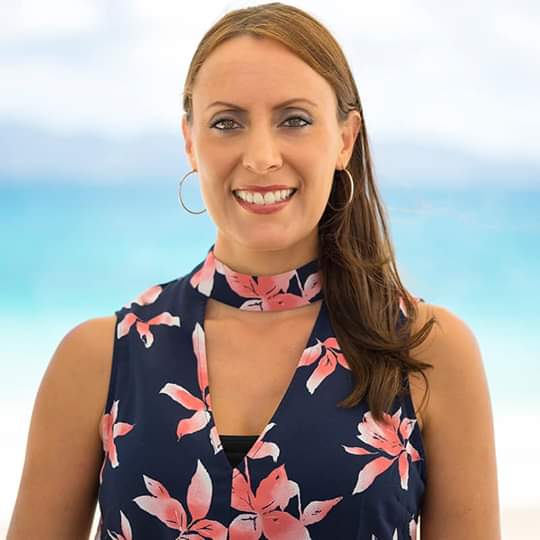
From this powerful awakening, Sexy Soul Search was born, a spiritual journey of self-discovery. It is my honor and privilege to share this process with my fellow thrivers. To help them discover that they are so much more than their body. That their true sexiness radiates from their soul.
By Cat Phillips
@sexysoulsearch

Dear Previvors,
Cancer is not going to wait for you to start your new health regimen. Cancer does not care if you just started a new job or are newly married. Cancer is not going to wait for you to have children. Cancer did not care that I was taking preventative measures and was proactively removing my breasts. It did not wait for me to find a convenient time and sadly, it’s not going to pay you a special courtesy.
I wish I had treated my positive BRCA1 test results like a cancer diagnosis. Instead, I waited too long for the ‘right’ time to take preventative measures and put myself at risk. Shortly after my 30th birthday, and just a day before my scheduled prophylactic (preventative) mastectomy, I was diagnosed with stage 3, triple negative breast cancer.

In my early twenties, I underwent genetic testing due to a significant family history of breast cancer. Testing revealed that I am a BRCA1 carrier. At that time, I was not ready for this news; I had just graduated university, was preparing to move abroad to begin my career and was not ready to think about the serious implications of this test. I promised myself then that as soon as I was secure enough in my career and had children of my own I would arrange to have a preventative surgery.
Shortly after receiving the results of genetic testing, I met with genetic counselors to discuss plans for future. I was given very high odds at developing breast cancer however preventative measures were not recommended to me at this time. Due to my age, I was unable to have mammograms and instead received annual MRI scans (a safer alternative). I thought that I was doing everything I should at the time and felt safe.
My mother was 41 years old when she was diagnosed with stage 2 breast cancer and my grandmother was 39. Due to the fact that breast cancer tends to develop earlier in later generations, as I approached the age of 30, I began to prepare myself mentally for a bilateral prophylactic mastectomy. In the fall of 2019, I met with two surgeons who would work alongside each other to remove and reconstruct my breasts. We scheduled my procedure for three months from that date and I began to prepare for this life-altering surgery.

Two weeks prior to my scheduled mastectomy, I discovered a lump, the size of a golf ball, in my left breast and had to endure six excruciating biopsies. This procedure took over an hour to complete and involved a doctor chasing solid masses within a cyst in my breast. This was the most invasive, horrific experience I have had to date. Just a day before my double mastectomy my surgeon called me to inform me that the biopsy results were positive for cancer cells.
When I received my diagnose I was in absolute shock. I felt like a ticking time bomb, living in fear that I would one day develop cancer and I had worked so hard to build up the courage to have an elective surgery. It felt like a cruel joke. I cannot begin to explain the frustration and regret that I felt and continue to feel. I had years to complete this surgery and did not act.
Since my bilateral mastectomy I have not had a moment to breathe. About a week after surgery, my boyfriend and I were rushed into family planning and fertility preservation as chemotherapy can cause infertility. I struggled to walk into the fertility clinic as I was still healing. I knew little about IVF so these procedures were overwhelming to me. My boyfriend was responsible for delivering 30 injections to me, each progressively causing me more discomfort as my ovaries grew. Days following my egg retrieval, I began chemotherapy and will soon receive radiation.

Each stage of this journey has been emotionally and physically challenging.
I didn’t have time to process my cancer diagnosis as my surgery was the following day. Following my surgery, I remember all I wanted was wanting to cry and scream and let out my emotions but I couldn’t because it would physically cause my too much pain. I felt trapped inside my own body and hated myself for not taking action sooner. I went from feeling empowered and optimist about my preventative surgery to feeling like a helpless victim. I grieve the loss of my breast, loss of sensation, and the ability to breastfeed every single day. I also fear that I may no longer have the opportunity to be a mother as IVF will have its own challenges in the future. I am terrified that treatment may result in secondary cancers or that cancer will return. These uncertainties weigh heavily on me.
If you are a BRCA carrier or someone with a high risk of developing breast cancer I can confidently say that you will never be ‘ready’ and no time will ever feel ‘prefect’ to undergo preventative measures. Nothing could have prepared me for a double mastectomy and I wish I knew that sooner. Waiting could be the difference between life and death. I strong urge you to undergo preventative measures (i.e. surgery) as soon as possible. A bilateral mastectomy is stressful and challenging enough without having to undergo fertility preservation and treatment as well. Take action and control before cancer does.
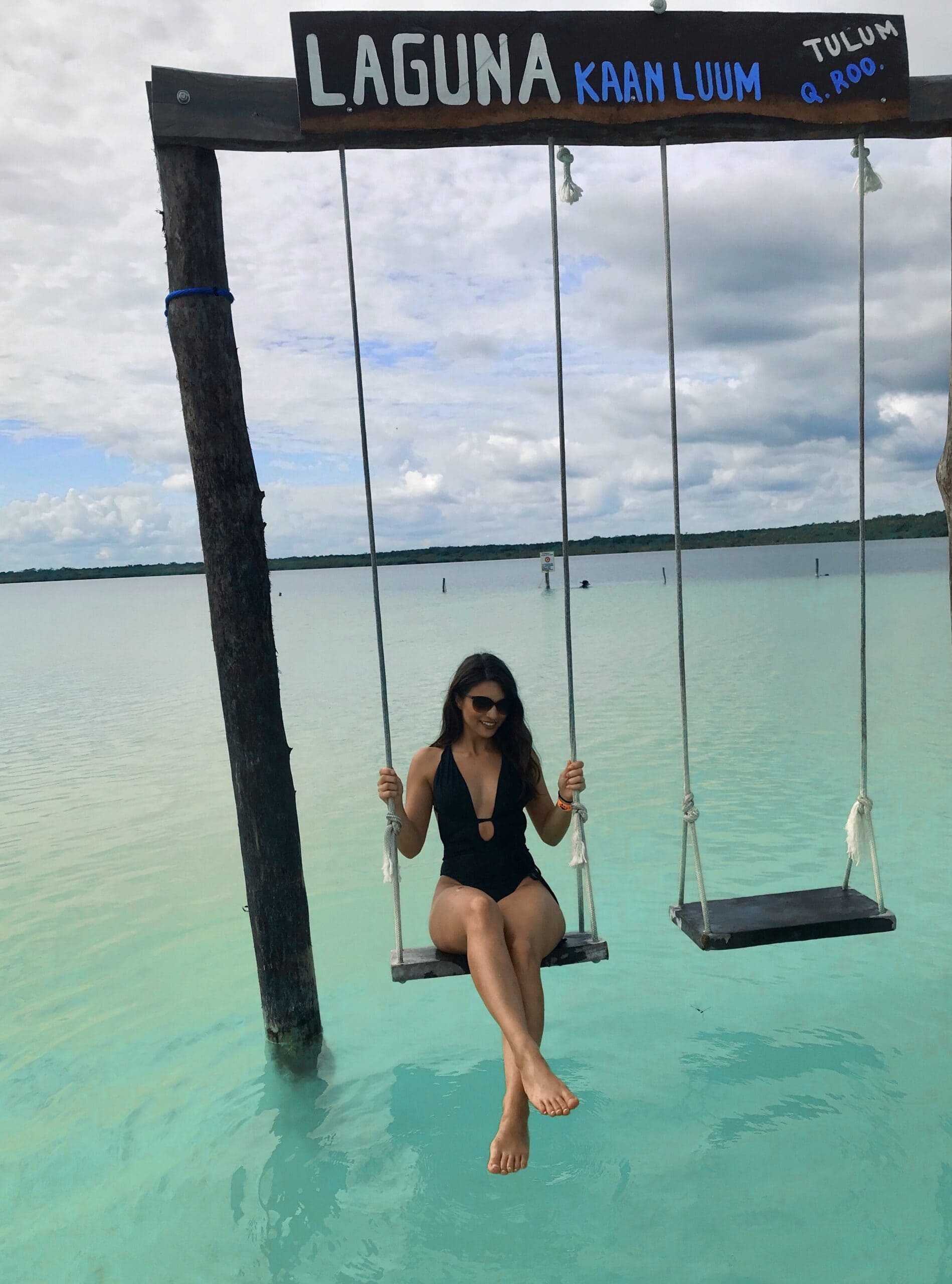
If you are found to be at high risk I want you to reframe how you perceive this diagnosis. Instead of asking yourself “Why me?” or thinking “ This is not fair!”, I want you to say, “I am thankful I know now.” If you are fortunate enough to receive a warning, act on it because some women may never know they are at high risk and others worse. I am grateful to have had the opportunity to prepare for my double mastectomy. I had time to say farewell and throw a ‘boob-voyage’ with my friends’ support, I had the chance to preserve a part of myself during a boudoir session, and I had the opportunity to educate myself and take my time in finding a surgeon I trusted. Since I took action, I had more control over loosing my breasts and this had mental health benefits.
Surgery will not be easy. Being a previvor means you will be tested emotionally and physically but having control will ease the process. Being a previvor means you do not have to rush fertility or compromise it. Being a previvor means you do not have to expose yourself to toxic treatments and put yourself at risk for secondary cancers. Being a previvor means your have a network of women at your access for support both in-person and online. I strongly urge you to take action while you can still be a previvor.
By Carmela Fuca
I became a Previvor on January 24th, 2020 when I underwent a prophylactic double mastectomy. I made the decision to have this surgery in order to significantly reduce my chance of getting breast cancer. My Previvor journey started in 2014 when my life as I knew it changed forever. Just two months after my wedding my Mother was diagnosed with ovarian cancer at only 53 years old. My life was turned upside down and shattered. My Mom was my best friend and we were extremely close so I was devastated when I received the news. She begun her fight with ovarian cancer by having surgery to remove the tumor which was wrapped around one of her ovaries and the ovaries themselves. After she healed from the surgery she then started chemotherapy to make sure they got rid of any traces left of the cancer. It was the hardest things I’ve ever gone through. Seeing her in the hospital recovering from a major surgery with tubes, i.vs and stitches, to then be sitting next to her in the infusion center where she would sit for sometimes 8 hours getting injected with chemo. It was devastating and I felt so helpless. Shortly after my Mom’s battle begun her doctors revealed that the cause of her ovarian cancer likely was due to a BRCA gene mutation. At the time nobody in our family had a clue what this meant. The doctors explained to us that one of my Mom’s genes was mutated and that mutation increases the risk of her to get ovarian or breast cancer. They told us that I could also have this gene if I was passed it on to me by my Mom. My Mom’s doctors urged that I get genetic testing to find out if I have the gene or not so I can be properly monitored. I went ahead with the genetic tests and was told I was positive for the BRCA2 Gene mutation in 2015 at the age of 28. I still had little idea what this actually meant and hadn’t fully grasped the importance of knowing this information.
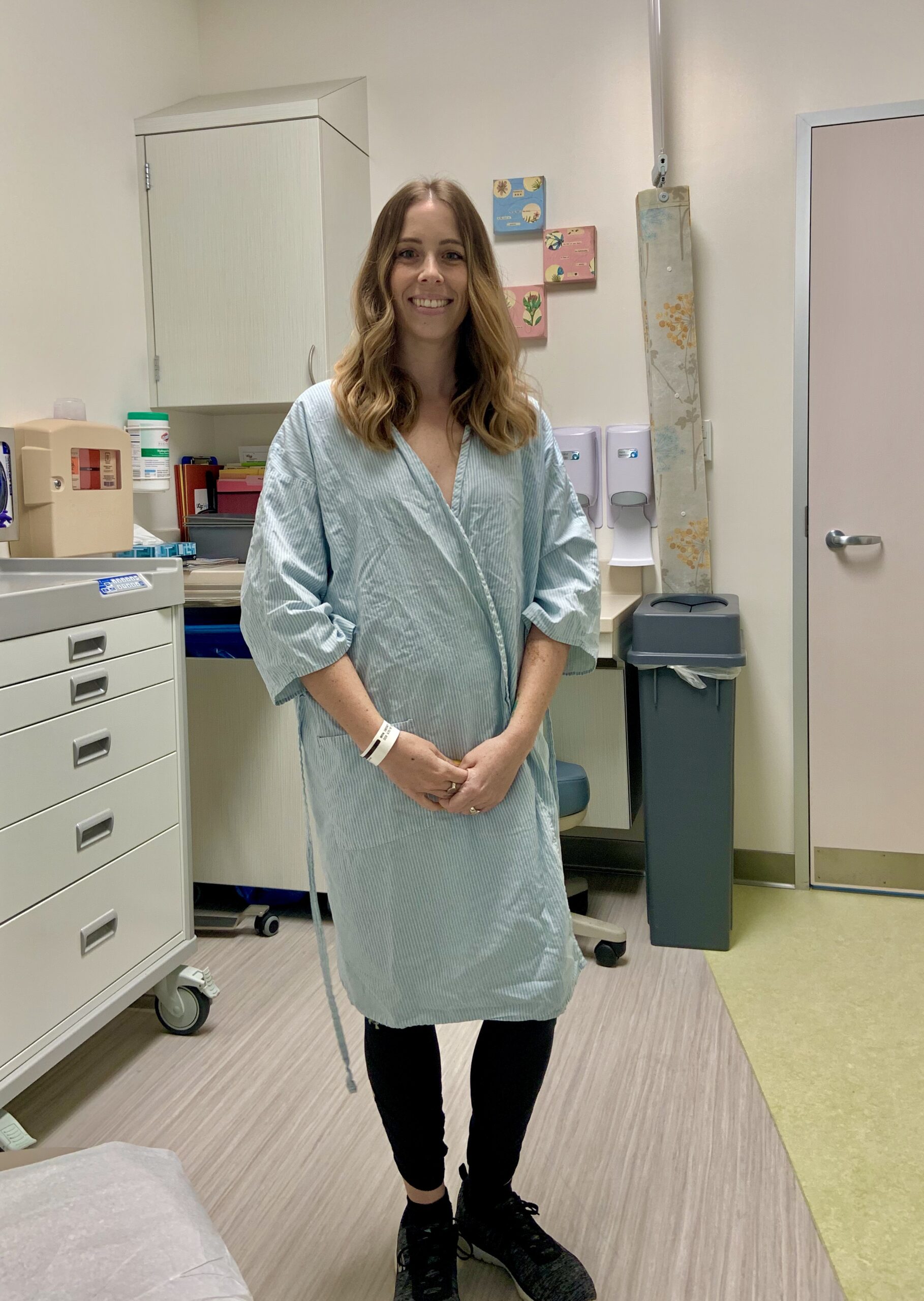
My Mom and Dad urged me to get all the recommended semi annual checkups, tests and procedures. At that time I brushed it off and kept thinking “I’m not sick, nothing is wrong with me yet, I’m still young, why do I need to worry?” But my Mom persisted so her doctors started scheduling routine mammograms, breast MRI’s, ultrasounds and CA125 blood work to try to detect any potential threat in my ovaries or my breasts. My doctors suggested that with my BRCA2 diagnosis I should have my breasts, ovaries and fallopian tubes removed eventually after I was finished having children so I could significantly reduce the possibility of getting cancer. For four years while my Mom continued to battle, I did what the doctors suggested and got routine mammograms, breast MRI’s, ultrasounds and CA125 blood tests. The ultrasounds aren’t fun unless you’re having a baby, the mammograms hurt, and the breast MRI’s for me are the worst! I also live over three hours away from the hospital where I was being seen which meant lots of long trips back and forth for all these screenings. The anxiety of getting the results back from all these tests and procedures was horrible. Every time I had a mammogram they called me back in because they “saw something they wanted to get additional images of.” This literally made my my mind go to all the worst places of what it could be and I dreaded the thought of having to tell my Dad they found something. Fortunately the second round of images always came back negative. After keeping up with these checkups and tests for four years, I knew I didn’t want to have to go through this for the rest of my life. After watching the pain and suffering my Mom went through with years of chemotherapy, surgeries and hospital stays solidified my decision to have the preventative surgeries done. In my mind it’s not an “if” I get diagnosed with cancer, it’s a “when”.
My Mother supported and urged me to get the surgeries done and was thankful the doctors at U.C.S.F were able to discover this information so that it could benefit my health in the future. She was so thankful we found out about the BRCA gene mutation early enough for me to have time to do something about it because she didn’t have that chance. My Mom had a hysterectomy in 2004 and the doctor decided to leave her ovaries in because she was still fairly young at the time. Ten years later she was diagnosed with ovarian cancer. If she would have been tested in 2004 for the BRCA gene mutation and tested positive, they most certainly would have taken her ovaries. My Mother passed away on November 30th, 2018, and shortly after my husband and I decided that it would be best for me to get the preventative surgeries done as soon as possible. We didn’t want to live the rest of our lives with this fear and constant anxiety. Since we had come to the conclusion that we didn’t want to have children, we figured I didn’t need my breasts or ovaries anyway. In early 2019 I met with my surgeons and put the plan into motion for my total skin sparing bilateral mastectomy with reconstruction as well as a bilateral salpingo-oophorectomy.
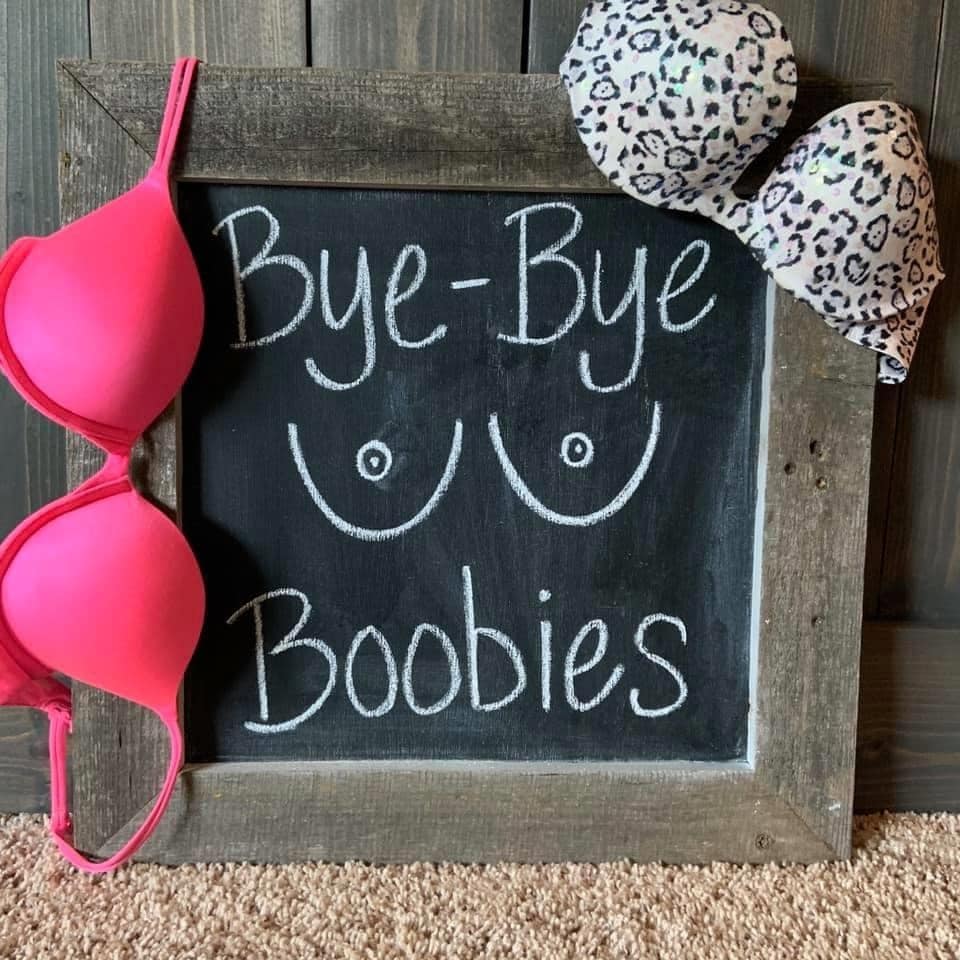
In the summer of 2019 my doctors starting working on coordinating a surgery date that worked with both my breast surgeon and my plastic surgeon’s schedules. When they called me to say they had picked a date and that my bilateral mastectomy surgery would be scheduled for January 24th 2020, I was terrified. I’d never had a surgery before or even broken a bone. I was nervous to say the least, as I had no idea what to expect, or what exactly I had signed up for. They told me I would first have the double mastectomy as well as having expanders placed in my empty breasts to stretch my skin out to prepare them for the implants. A couple months later I would then come back for a second surgery to remove the expanders, replace them with silicone implants, do fat grafting from my stomach to fill in the gaps and the bilateral salpingo-oophorectomy. I didn’t like the idea of having 2 separate surgeries but I trusted that my doctors knew what was best for me. On January 24th, 2020 I became a Previvor after undergoing a prophylactic bilateral mastectomy.
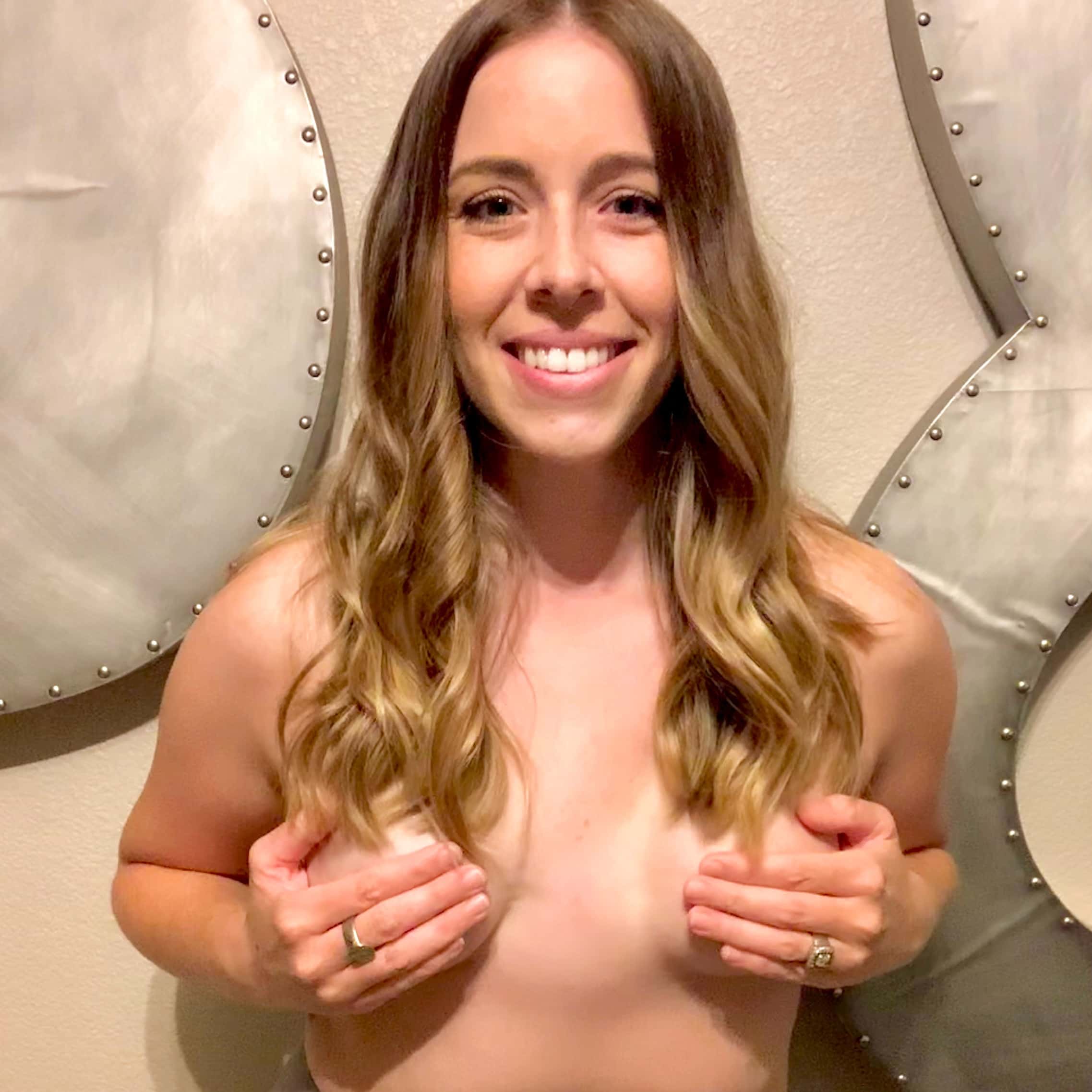
I am a survivor of my predisposition to breast cancer. I’m patiently waiting for my next surgeries so that I can eliminate the huge risk of ovarian cancer that I’m carrying and get myself some more comfortable and nicer looking boobs. I’m looking forward to completing my Previvor journey. I’m so proud of myself for choosing to take action and not letting cancer dictate my life! Sometimes I still can’t believe I got the courage up to go through with it. I am so happy with my decision and I look forward to a long wonderful life! I know my Mom would be so proud of me and I’m sure she’s cheering me on along on this journey from up above.
By Jennah Terry